together





healthy
Fall 2022A Publication of ROBERT WOOD JOHNSON UNIVERSITY HOSPITAL SOMERSET HELPING PATIENTS NAVIGATE CANCER GIVING BACK AFTER BREAST CANCER A SIMPLE WAY TO SAVE LIVES TREATING PAIN WITH PHYSICAL THERAPY
“Being recognized nationally for excellence is an important validation. That’s why I am delighted that Rutgers Cancer Institute of New Jersey together with RWJBarnabas Health achieved High Performing status in the adult specialty category for cancer in the most recent U.S. News & World Report Best Hospitals survey. This demonstrates the extraordinary, multidisciplinary care we provide for our communities, informed by groundbreaking cancer research, scientific leadership and transformational discoveries alongside exceptional patient experience.”
BARRY H. OSTROWSKY | Chief Executive Officer, RWJBarnabas Health
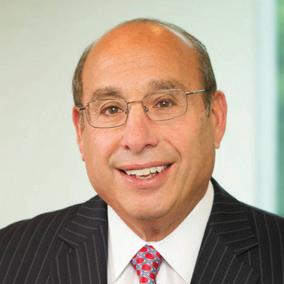
“As New Jersey’s largest and leading academic healthcare system, we pride ourselves on providing exceptional care for our communities together with our partners such as Rutgers Cancer Institute of New Jersey, the state’s only NCIDesignated Comprehensive Cancer Center. We congratulate Rutgers Cancer Institute on receiving the highest score in New Jersey in the adult specialty category for cancer in U.S. News & World Report’s annual Best Hospitals survey. This validates the exceptional level of cancer care we provide across our health system.”
MARK E. MANIGAN | President, RWJBarnabas Health
“Robert Wood Johnson University Hospital Somerset is proud to partner with Rutgers Cancer Institute of New Jersey to provide world-class cancer care at our Steeplechase Cancer Center. Our patients benefit from having access to leading cancer specialists and cutting-edge research and treatments close to home. Kudos to the team at Rutgers Cancer Institute for being ranked the best in New Jersey by U.S. News & World Report.”
ANTHONY CAVA TO RETIRE; PATRICK DELANEY TO LEAD
Anthony V. Cava, MS, RPh, FACHE, will retire as President and Chief Executive Officer of Robert Wood Johnson University Hospital (RWJUH) Somerset, effective January 2, 2023. Patrick Delaney, the hospital’s Chief Operating Officer, will succeed Cava as RWJUH Somerset’s Chief Administrative Officer.
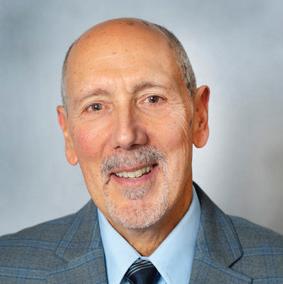
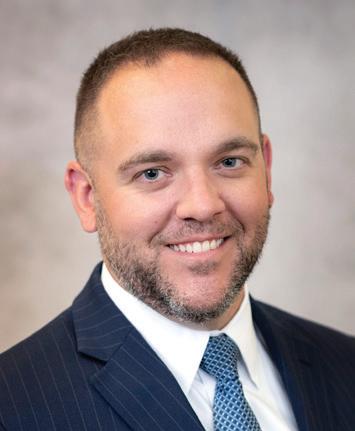
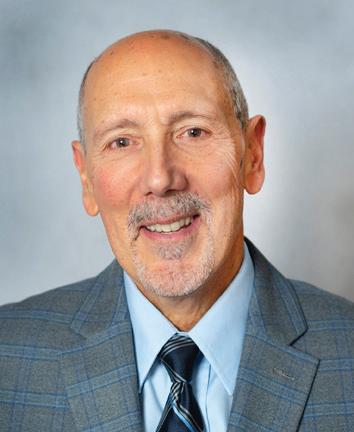
“Tony Cava guided RWJUH Somerset through a transformative time in the hospital’s 123-year history, driving significant growth and expansion of the hospital’s services to meet the community’s needs,” says Bill Arnold, Executive Vice President, Southern Region, RWJBarnabas Health, and President and CEO, Robert Wood Johnson University Hospital. “We are grateful for his vision and leadership.”
Cava, a registered pharmacist, joined RWJUH Somerset in January 2015 and led the hospital through the merger creating RWJBarnabas Health. He modernized the hospital and expanded services such as opening the Babs Siperstein PROUD Center in 2017. Under his leadership, the hospital has earned numerous awards for safety and excellence.
EXPERIENCED LEADERSHIP
@RWJSomerset
Robert Wood Johnson
University Hospital Somerset
Delaney has worked side by side with Cava for the past seven years and brings broad knowledge and passion for healthcare operations and business development. “He will continue to build on the hospital’s tradition of clinical excellence, positioning it for future growth and ensuring that Central New Jersey residents have access to the highest-quality medical care,” Arnold says.
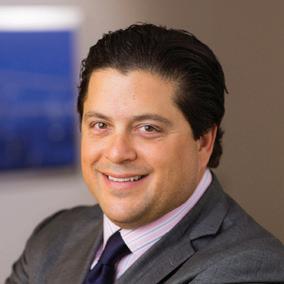
servicios de asistencia lingüística, de forma gratuita,
usted.
Somerset konfòm
lwa
usted habla
908.685.2200.
baz
koulè,
sèks. ATANSYON: Si w pale Kreyòl Ayisyen, gen sèvis èd pou lang ki disponib gratis pou ou. Rele 908.685.2200.
orijin, laj, enfimite
issues regarding delivery of Healthy Together, please write to HTcirculation@wainscotmedia.com.
Delaney joined RWJUH Somerset in March 2015. Chief Operating Officer since 2020, he oversees ambulatory services and support areas, and has worked with Cava to manage hospital operations and facility improvements, including plans for a two-story vertical expansion that will house the Orthopedic Center of Excellence. Delaney also guided the hospital’s operational response to the COVID-19 pandemic and helped lead a transition to the Epic electronic health record system in 2021.
110 Rehill Ave., Somerville, NJ 08876 | 908.685.2200 @RWJSomerset @RWJSomerset RWJBarnabas Health CONNECT WITH US ON RWJUH Somerset complies with applicable federal civil rights laws and does not discriminate on the basis of race, color, national origin, age, disability or sex. For more information, see link on our home page at rwjbh.org/ somerset. RWJUH Somerset cumple con las leyes federales de derechos civiles aplicables y no discrimina por motivos de raza, color, nacionalidad, edad, discapacidad o sexo. ATENCIÓN: Si
español,
están disponibles para
Llame al
RWJUH
ak
sou dwa sivil federal ki aplikab yo e li pa fè diskriminasyon sou
ras,
peyi
oswa
For
HEALTH NEWS
MESSAGES FROM LEADERSHIP
ANTHONY CAVA PATRICK DELANEY
ANTHONY CAVA | President and Chief Executive Officer, Robert Wood Johnson University Hospital Somerset
Healthy Together | 2 Fall 2022
healthytogether
2. WELCOME LETTER. A community update from our leadership.
4. ‘YOU CAN’T KNOCK ME DOWN.’ Staying positive helps a woman bounce back from multiple health challenges.
6. PHYSICAL THERAPY, NOT SURGERY. Noninvasive treatments help relieve a man’s chronic neck pain.
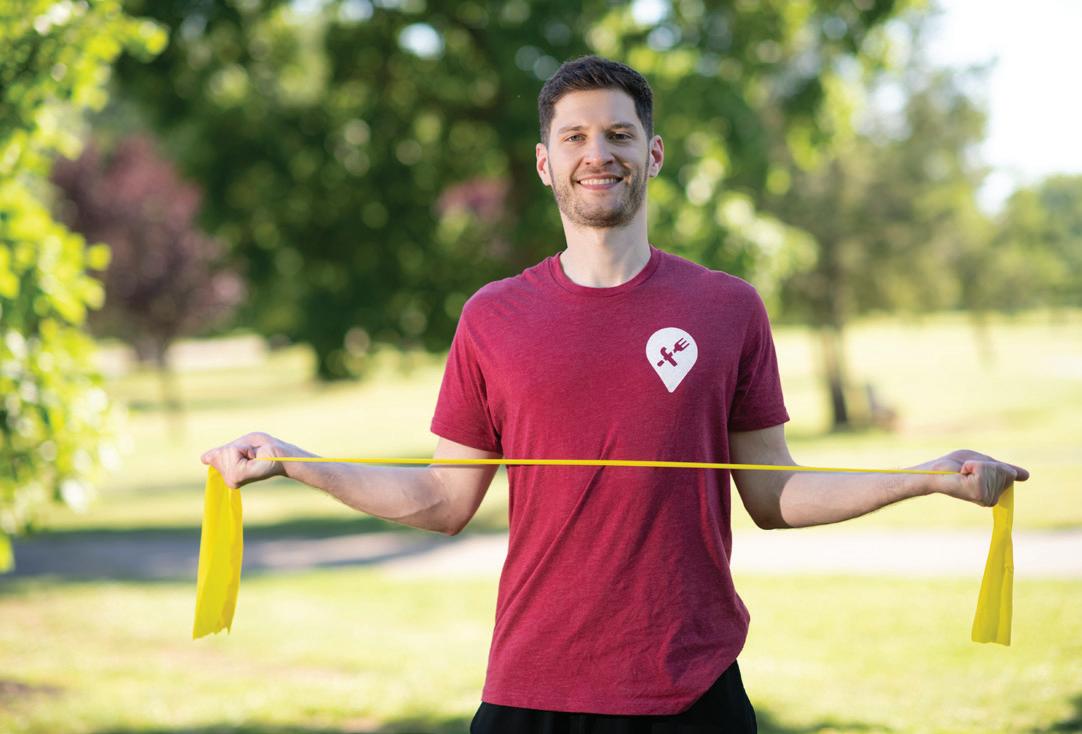
8. WHAT TO KNOW ABOUT EATING DISORDERS. Learn what they are, why they happen and how they can be treated.
10. COPING WITH HOLIDAY DEPRESSION. How to move through the melancholy that often comes with the holidays.
12. NAVIGATING YOUR CANCER JOURNEY. RWJBH’s Nurse Navigation Program provides support, guidance and compassion.
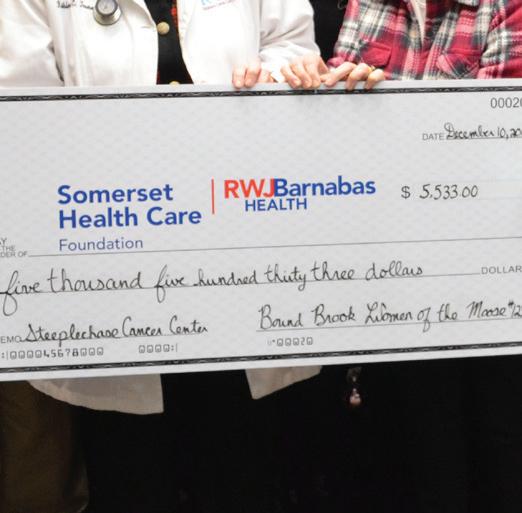
14. ONE STEP AT A TIME. How the physical therapy team at Children’s Specialized Hospital helped a boy with spina bifida.
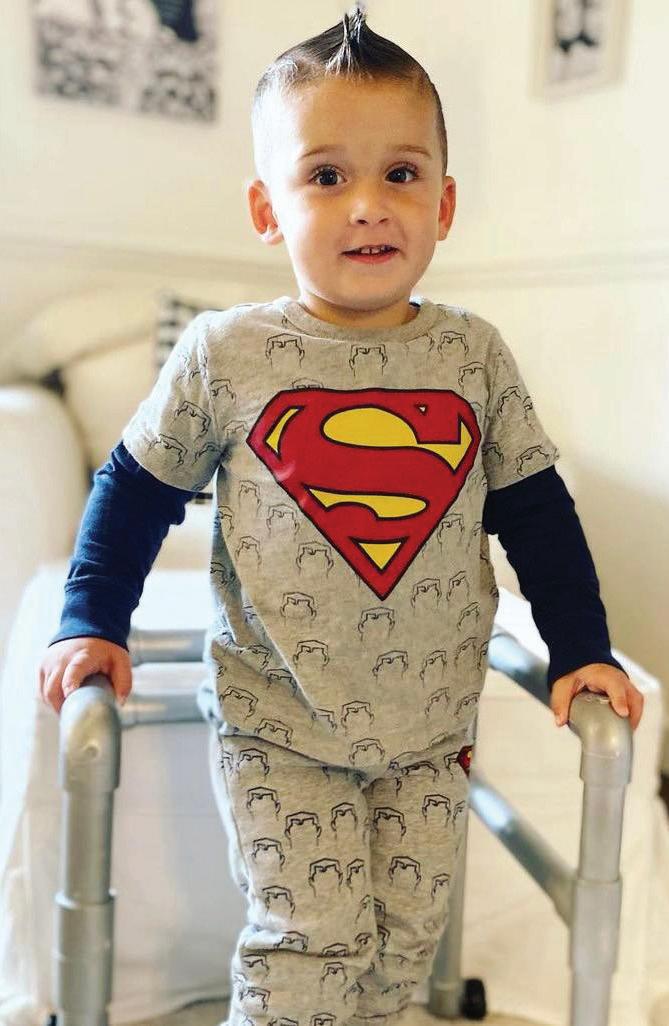
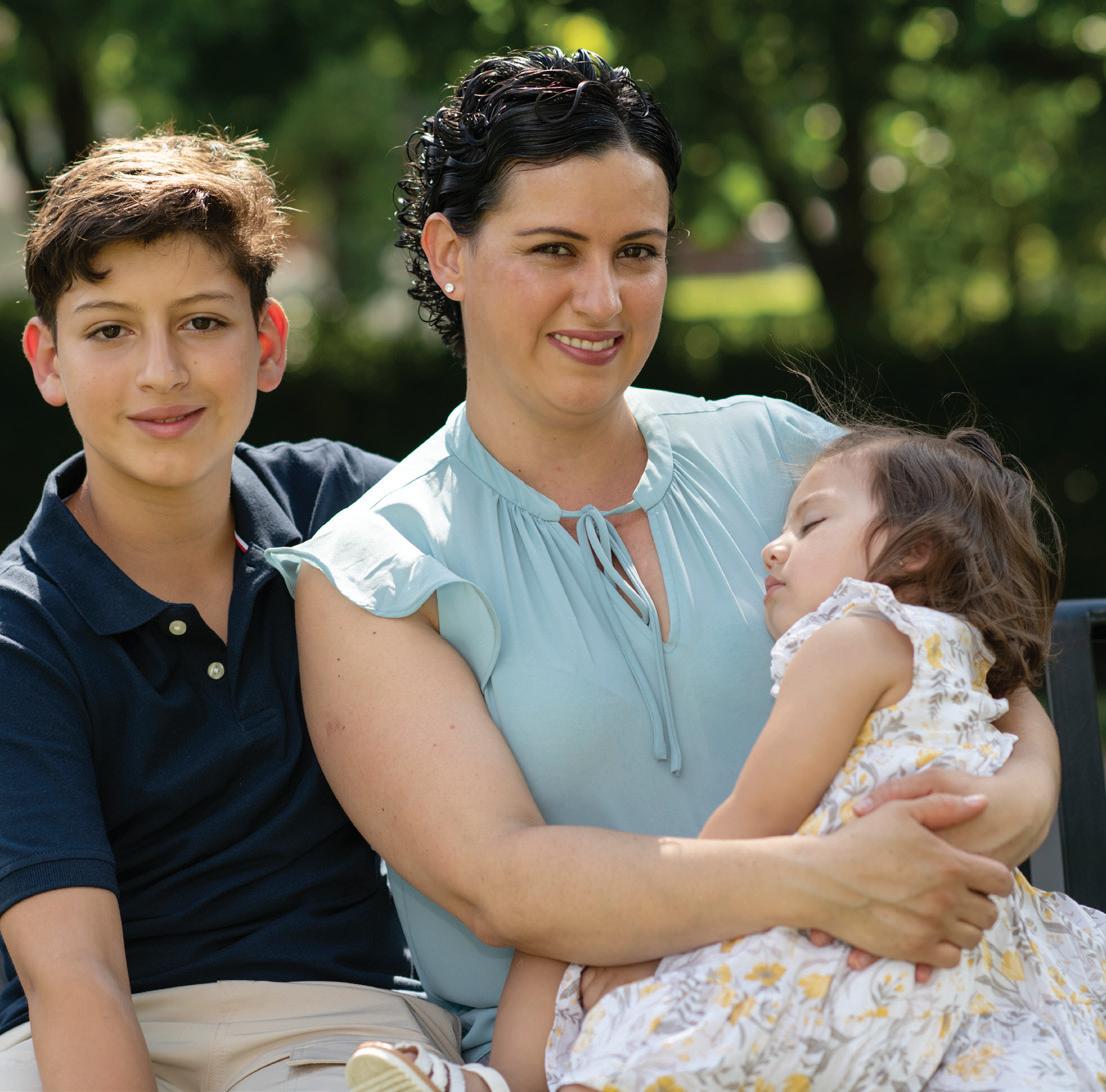
16. THE LOWDOWN ON LOWDOSE ASPIRIN. The latest guidelines for heart attack and stroke prevention.
17. BOUND TO HELP. Bound Brook Women of the Moose support the Steeplechase Cancer Center in memory of a friend.

18. ‘MY CANCER WAS TREATABLE.’ A woman joins the ranks of breast cancer survivors thanks to advanced treatment and support.
20. GIVING THE GIFT OF LIFE. Blood donors like these are more important than ever.
22. COMMUNITY CALENDAR. A roundup of health, education, screening and support programs.
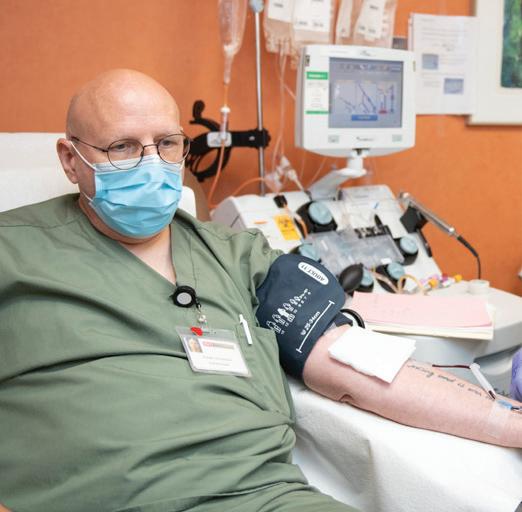
18 6 contents FALL 2022
4
20 17 14
Robert Wood Johnson University Hospital Somerset | RWJBH.ORG/SOMERSET 3
YOU CAN’T KNOCK ME DOWN’
When Debbie Capasso awoke with excruciating abdominal pain one night in late March 2020, the prospect of having COVID-19 never crossed her mind. She recently had been diagnosed with a sinus infection, and abdominal pain wasn’t considered a common symptom of COVID-19. “Nobody really understood what COVID was at the time,” says the 68-year-old Somerset retiree.
Her husband, Joe, called their neighbor, a gastroenterologist, who told
him to get Debbie to the emergency room immediately. Debbie’s pain was so severe that she lost consciousness during the ambulance ride to Robert Wood Johnson University Hospital (RWJUH) Somerset.
It was the first in a string of major health issues for Debbie. She would end up being treated at RWJUH Somerset several times in just two years. “The total number of healthcare challenges Debbie faced in a short time is among the most in a single patient that I have seen in my 25 years in medicine,” says Michael Rodricks,
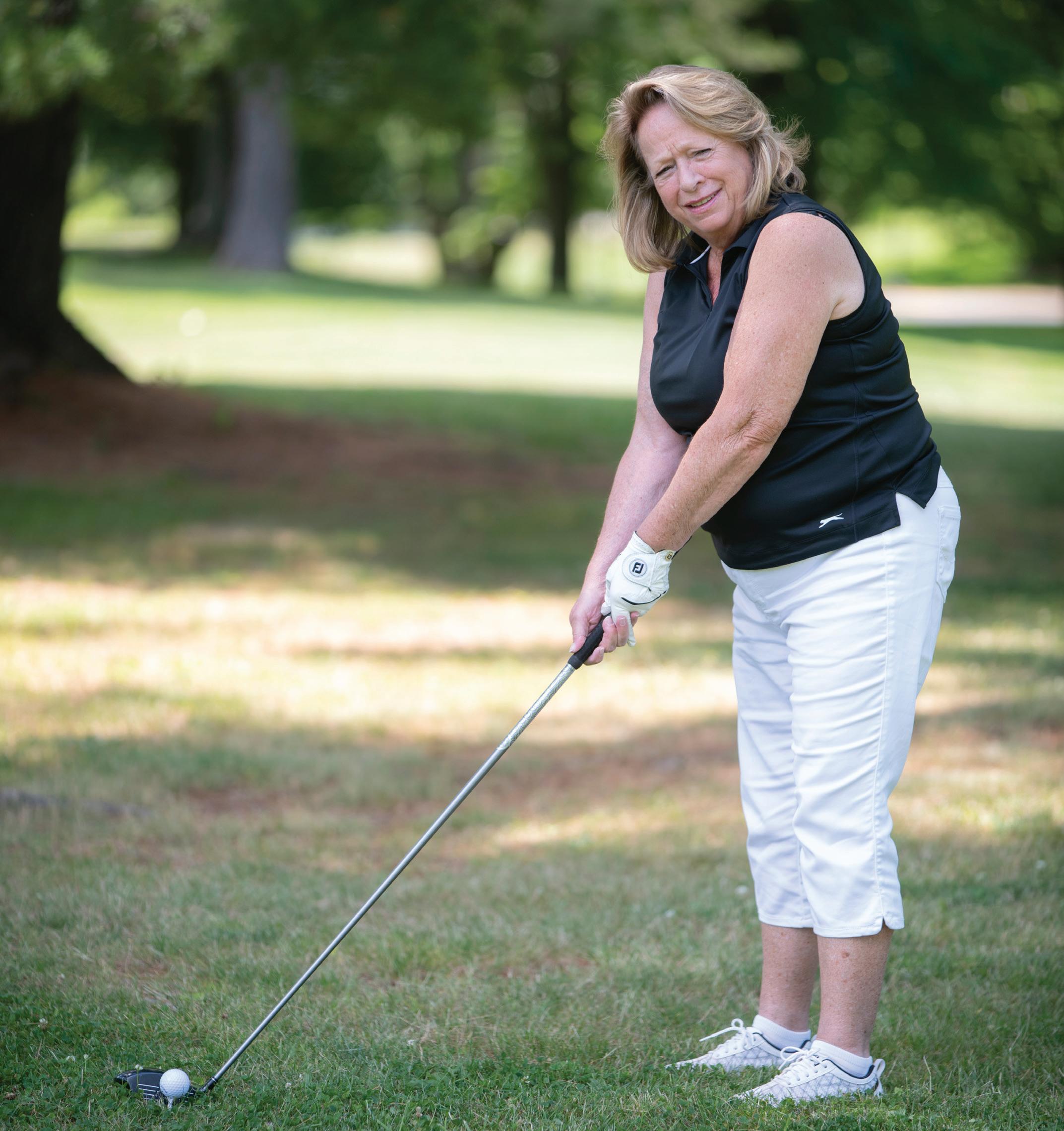
MD, Medical Director of Critical Care at RWJUH Somerset.
CRITICAL CONDITION
Debbie’s condition at RWJUH Somerset rapidly deteriorated. She developed respiratory distress shortly after her arrival at the hospital. Despite the lack of rapid testing in the early days of the pandemic, Dr. Rodricks and the critical care team quickly determined that her symptoms were COVID-19-related and life-threatening. “I was in a daze.
‘
STAYING POSITIVE HELPS A WOMAN BOUNCE BACK FROM MULTIPLE HEALTH CHALLENGES.
Debbie Capasso’s love of golf helped keep her focused on recovery.
Healthy Together | 4 Fall 2022
I didn’t know what to do,” Joe says. “I called my family and friends, and we all just started praying.”
Debbie received remdesivir—an antiviral shown to reduce severe COVID symptoms—as well as an anticoagulation drug to prevent blood clots. Despite the powerful medications, she further deteriorated, developing acute respiratory distress syndrome (ARDS). Because of her severely compromised lungs, Debbie required intubation and was placed on a ventilator. She remained on life support for a total of 15 days.
Due to infection risks during this pre-vaccine period of the pandemic, no visitors were allowed in the hospital, so Joe couldn’t visit his wife. Dr. Rodricks called Joe every day with updates on Debbie’s condition. He was “a calming influence,” Joe says. The two discovered they shared a love of Notre Dame football. “It made for a distraction from all the chaos, pain, suffering and death that was taking place throughout the country at the time,” Dr. Rodricks says.
After prolonged stays in the intensive care unit and later a rehabilitation unit, Debbie went home in early May 2020. Side effects like hair loss, numbness in her tongue and blood blisters from the ventilator seemed minor: She and her husband were thankful she was alive and making a remarkable recovery.
CONTINUED CHALLENGES
Debbie’s difficulties were, unfortunately, far from over. In the middle of a snowstorm in February 2021, she underwent total knee replacement surgery. She had needed the procedure for about three years, as pain in her right knee had become unbearable. “I couldn’t function,” Debbie says. Stephen Kayiaros, MD, an orthopedic surgeon at RWJUH Somerset, performed the surgery.
By May, she had recovered well enough from her knee replacement to again take up one of the great joys of her life: playing golf. But later that month came the next unwelcome milestones.
First, Debbie slipped and broke her wrist while gardening at home. Several days later, she went to RWJUH Somerset’s emergency room with another bout of gastrointestinal pain. This time the diagnosis was diverticulitis, an
infection of her colon.
Robert Boretz, MD, an orthopedic surgeon at RWJUH Somerset, examined X-rays of Debbie’s wrist and put it in a brace for five weeks. Meanwhile, taking antibiotics to fight the colon infection resolved her stomach pain.
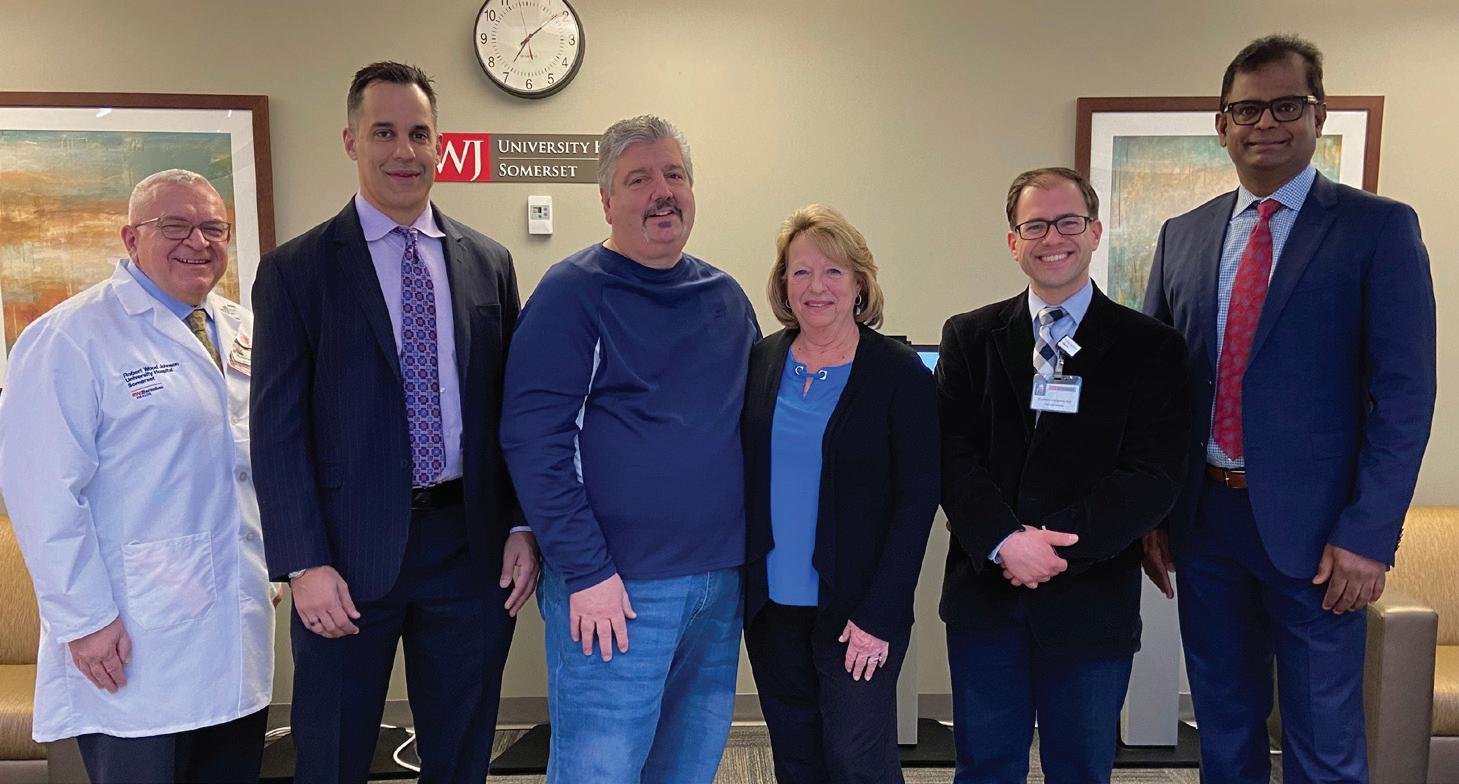
In August, Debbie completed physical therapy for her wrist and returned to the links. She has golfed with neighborhood friends for 30 years, and her love of the sport motivated her during her recoveries. “I missed golf so bad,” Debbie says. “It was the one thing I had to get back to doing.”
Then, while sitting in church with her husband the following month, Debbie had a recurrence of her excruciating abdominal pain. “To the ER we go again,” she says. CT scans showed an abscess in her colon caused by inflammation from her diverticulitis. She met with Thangamani Seenivasan, MD, a surgeon and oncologist at RWJUH Somerset, who ultimately performed a colostomy, which removed the abscess and part of the colon to create a bypass of the damage.
Debbie was sent home wearing a colostomy bag. Three months later, when the inflammation died down, Dr. Seenivasan performed a reverse
colostomy to remove the bag and reattach Debbie’s colon.
Dr. Rodricks visited Debbie during the procedures. “She was always upbeat but definitely looked forward to being discharged,” he says. “I think she’d had enough of being in the hospital to last a lifetime.”
AN OPTIMISTIC OUTLOOK
Through every procedure, Debbie has stayed positive. “That’s just the kind of person I am,” she says. “You can’t knock me down.”
Dr. Rodricks credits Debbie’s perseverance and optimism for speeding her healing. “Her strong drive to get better has undoubtedly served her well in her recoveries,” he says. “She always has the attitude of ‘when I am fully recovered,’ not ‘if I can recover.’”
“I owe a great deal to all the wonderful doctors who took excellent care of me,” Debbie says. In addition, Joe’s devotion to Debbie’s care “cannot be understated,” Dr. Rodricks says. Joe quit his job for a year and a half to grocery shop and cook for Debbie while she grappled with her challenges and fought her way back to health. Debbie says she wouldn’t be here without Joe: “My husband saved my life.”
To
learn more about Robert Wood Johnson University Hospital Somerset, visit www.rwjbh.org/somerset .
Debbie Capasso (third from right) came through severe illnesses and major surgeries at RWJUH Somerset with help from (from left) Chief Medical Officer Salvatore Moffa, MD; Medical Director of Critical Care Michael Rodricks, MD; Debbie’s husband, Joe; orthopedic surgeon Stephen Kayiaros, MD; and surgical oncologist Thangamani Seenivasan, MD.
Robert Wood Johnson University Hospital Somerset | RWJBH.ORG/SOMERSET 5
PHYSICAL THERAPY INSTEAD OF SURGERY
TREATMENTS HELP RELIEVE A MAN’S CHRONIC NECK PAIN.
David Herren, a 30-year-old Colonia resident, started experiencing chronic neck pain in his 20s. Frequent forays on the basketball court, softball diamond, flag football field and in the gym had overtaxed his upper spine and surrounding muscles, and at 26 he was diagnosed with a herniated disk—a bulging of one of the soft pads that cushion spaces between the bony vertebrae of his spine.
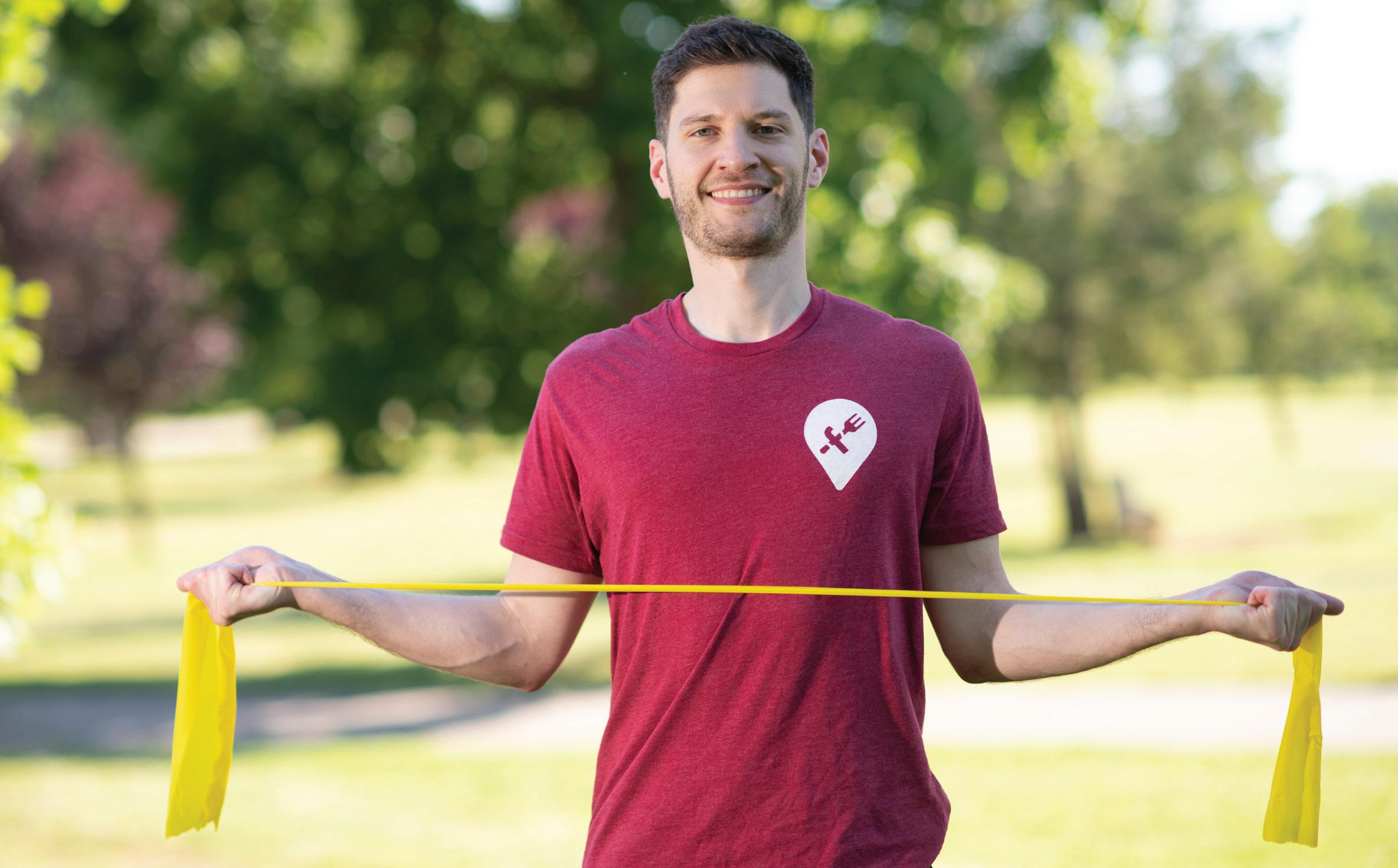
Herren had tried treatments ranging from cortisone injections to regional nerve blocks to dull the pain. None worked for long, and he had just started
trying physical therapy. Then the COVID-19 pandemic hit.
A junior high school educator, Herren abruptly shifted to teaching from home. Changes in his work habits—now heavily oriented toward his computer— ratcheted up his pain. The tall and lanky Herren found that teaching class over Zoom, grading assignments and writing emails now triggered frequent tension headaches along with more severe neck pain and tightness that extended to his shoulders and down his arms.
“I was definitely hunched over more, leaning forward with my shoulders up near my ears,” he says. “A lot of desks
aren’t made for people my height. Even sitting in bed, my neck screamed.”
A PERSONALIZED PROGRAM
Herren feared he might need neck surgery to correct his disk herniation and relieve his pain. One doctor had already recommended it—a prospect that “threw me for a loop,” Herren says. He hoped continuing the physical therapy he’d begun just before the pandemic would provide an alternative.
Geoffrey Stankus, PT, DPT, a physical therapist at Robert Wood Johnson University Hospital (RWJUH) Somerset’s Sports Physical Therapy in Princeton,
NONINVASIVE
Healthy Together | 6 | Fall 2022
understood how the pandemic lockdown had affected Herren’s condition. “It made his disk herniation a lot worse,” Stankus explains. “It was the proverbial straw that broke the camel’s back. The problem was already there, and the pandemic gave it magnitude.”
Stankus devised a personalized physical therapy regimen for Herren that focused on loosening overly tight muscles at the back of his neck while strengthening muscles in his upper back. Measures included deep tissue massage, stretching and weight lifting combined with occasional heat and ice therapy along with education about proper posture and muscle use.
“Stankus gave me handouts with directions, and once a week he’d add more exercises,” Herren says. “He started with the root of my problem—my posture—and focused on the mobility of my shoulders, then went on to rebuilding muscle.”
CARRYING LESSONS FORWARD Stankus agreed that a noninvasive approach was preferable to surgery, which entails the possibility of complications such as infection, blood loss or nerve damage.
“Within a few weeks of physical therapy, we generally are going to know
if we can make a problem better,” Stankus says. “Trying something less invasive may give you more insight into what’s causing your pain.” Physical therapy can easily be adjusted with new knowledge. Surgery, while sometimes necessary to correct neck and spine issues, is less adaptable or readily undone, he says.
Herren began seeing Stankus twice a week and generally has been able to apply newly learned exercise and stretching regimens at home. Some of the methods Herren has learned are specifically designed to accommodate a slight curvature of his spine. He’s thrilled that physical therapy has helped him avoid the operating table.
Back in the classroom as pandemic restrictions lifted, Herren continued to stretch, exercise and practice better posture while teaching again in person.
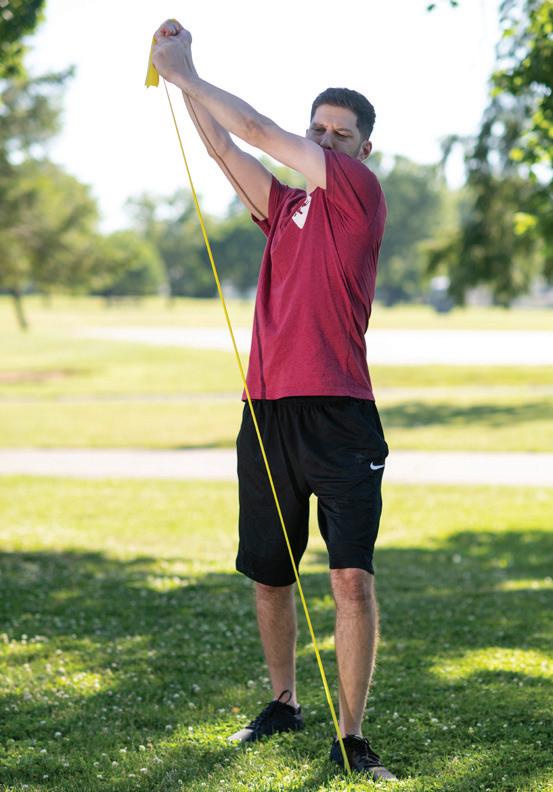

“My shoulders are feeling more open now,” Herren says. Even while still feeling a slight pulling sensation in his neck, “the severity compared to where I was is night and day,” he says. “Beyond that, I’ve noticed that certain things I couldn’t do before without pain don’t happen as much. And I now know that if my pain flares up, I have exercises that will bring me relief.”
SAVE YOUR NECK FROM STRAIN
When pandemic lockdowns eased, Geoffrey Stankus, PT, DPT, a physical therapist at Robert Wood Johnson University Hospital (RWJUH) Somerset’s Sports Physical Therapy in Princeton, found that many returning patients suffered from neck pain or strain likely linked to working or learning from home. “People were—and are—spending hours looking at phones or screens,” he says.
Some 22 muscles in the neck support the weight of the head, and every inch you shift your head forward—as when hunched over a screen—adds 10 to 12 pounds of force on your neck. Resulting strain can show up as headaches, shoulder pain, stiffness, and numbness or tingling that extends to the fingers.
To avoid such problems, Stankus suggests measures like these:
• Try to hold your head with the middle of your ear aligned with the middle of your shoulder—a neutral position that helps reduce muscle strain in the neck.
• Limit unbroken periods of screen use to 30 minutes or less.
• Change your body position or reset your posture at least every 30 minutes, especially when using devices or screens.
• Stretch your neck from side to side and back and forth frequently throughout the day.
• Drink plenty of water, which can help keep muscles and nerves working properly.
• Eat protein-rich foods, which help facilitate muscle repair.
David Herren thought he might need spine surgery but instead has been able to ease severe neck pain with the help of stretches and exercises that he learned in physical therapy and can practice on his own.
To learn more about physical therapy at Robert Wood Johnson University Hospital Somerset, call 855.777.8763 or visit www.rwjbh.org/SomersetPT .
Robert Wood Johnson University Hospital Somerset RWJBH.ORG/SOMERSET 7
WHAT TO KNOW ABOUT EATING DISORDERS
THEY’VE INCREASED DURING THE PANDEMIC, BUT HELP IS AVAILABLE.
Virtual schooling, working from home, social isolation—such pandemic measures help prevent the spread of COVID-19, but for some people they also can trigger anxiety and increased attention to physical appearance. Teens using social media can be especially influenced by images of seemingly perfect bodies and become determined to achieve a physical ideal no matter what.
“All of this has contributed to an increase in eating disorders,” says Darlene Osipuk, MD, a psychiatrist with the Eating Disorders Program at Robert Wood Johnson University Hospital (RWJUH) Somerset. The program is one of only two inpatient eating disorders programs in New Jersey and has been undergoing a major renovation to create a state-of-the-art facility that promotes healing, wellness and recovery. Dr. Osipuk explains what drives eating disorders and how they can be treated.
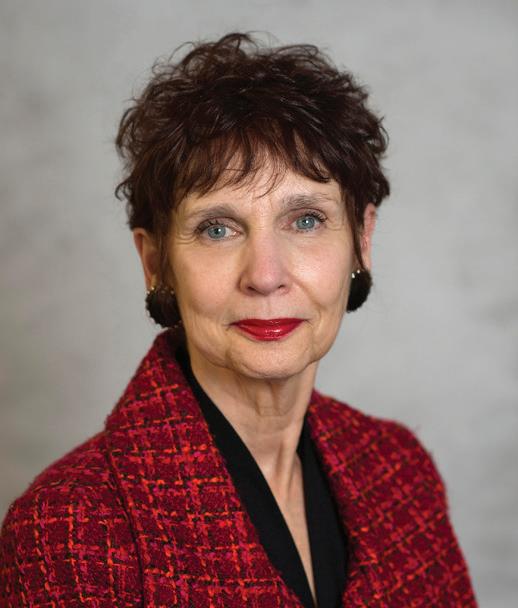
What are eating disorders?
One of the most common is anorexia nervosa, in which people restrict food intake and/or enhance physical activity to keep body weight dangerously low. Another is bulimia nervosa, in which people binge and purge in episodes of excessive eating and vomiting, sometimes accompanied by improper use of laxatives or diuretics. Unrecognized or untreated eating disorders can lead to severe health issues including cardiovascular disease,
osteoporosis, anemia, kidney dysfunction and, in some cases, death.
Who is most at risk?
Eating disorders affect all genders and any age group but usually begin in young adulthood. Adults diagnosed later with an eating disorder typically have struggled with it for some time. Between 10 and 30 percent of patients are males, who may focus more on muscles or strength and often have more difficulty asking for help.
Why might someone develop an eating disorder?
These disorders often stem from an underlying problem such as a traumatic life event, family or social problems or emotional issues including anxiety, obsessive-compulsive disorder, low selfesteem and stress. An eating disorder might be a way to cope and feel more in control. Resolution of physical, biological, psychological and sociological issues can be achieved but typically entails a long and challenging treatment process.
How can eating disorders be treated?
Options vary but typically include therapy/counseling, support groups, nutrition education and, if necessary, inpatient stabilization, medication management and education. Appropriate treatment provides individuals the opportunity to develop more effective coping skills and ultimately facilitates a happier and healthier life.
SIGNS OF AN EATING DISORDER
Physical
• Continual dieting, rapid weight loss and/or loss of more than 15 percent of weight
• Intolerance to cold
• Ceasing of menstrual periods
• Extreme fatigue
• Unexplained dizziness or faintness

• Physical changes such as thinning hair, bluish fingers, dry skin or swollen arms and legs
Emotional/Behavioral
• Unusual food behaviors such as hiding food, refusing to eat in public or lying about food quantity eaten
• Excessive or compulsive exercise
• Intense anxiety over missed workouts
• Emotional changes such as depression, irritability, reduced interest in sex or low self-esteem
• Social withdrawal
DARLENE OSIPUK, MD
To learn more about the Eating Disorders Program at Robert Wood Johnson University Hospital Somerset, call 800.300.0628 or visit www.rwjbh.org/somerset .
Healthy Together | 8 Fall 2022
The best kind of back support is spine care close to home. Do it right. Here.
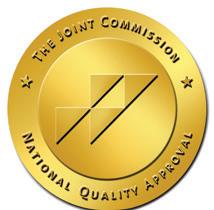




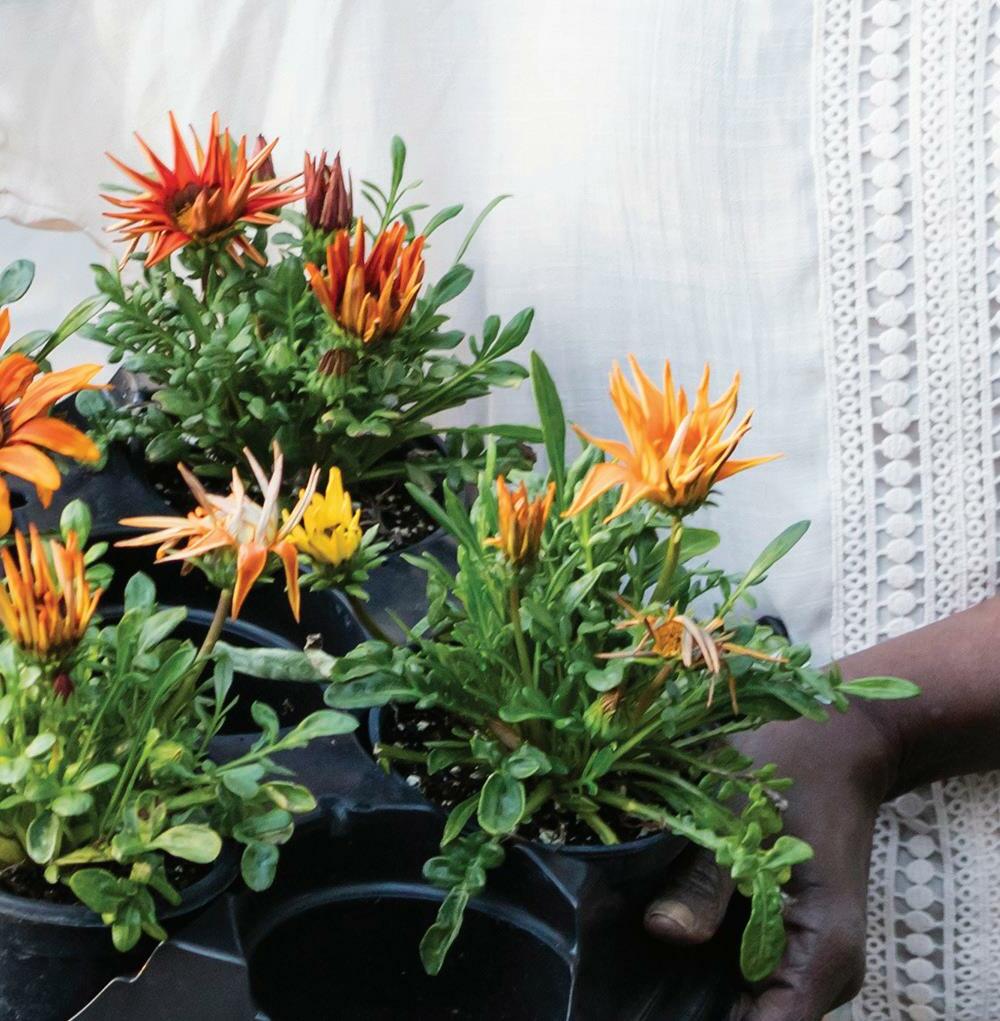
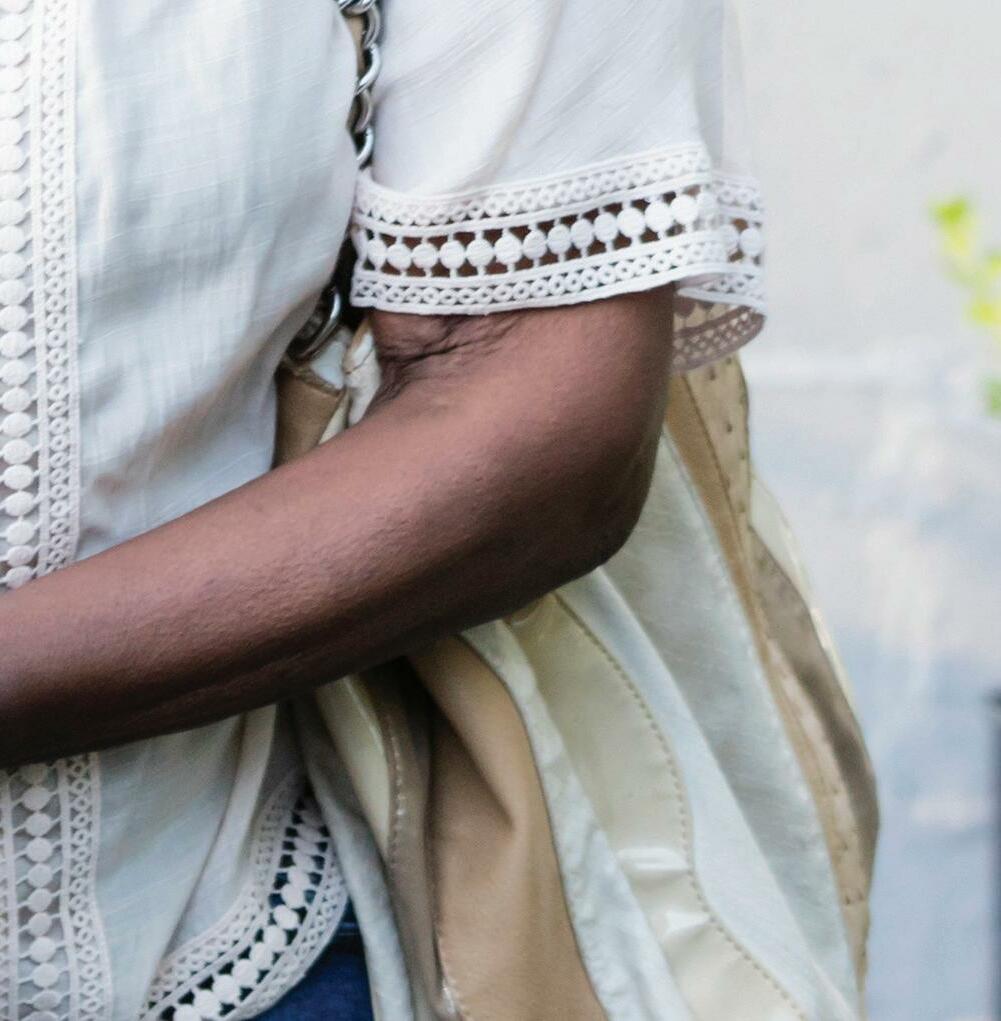
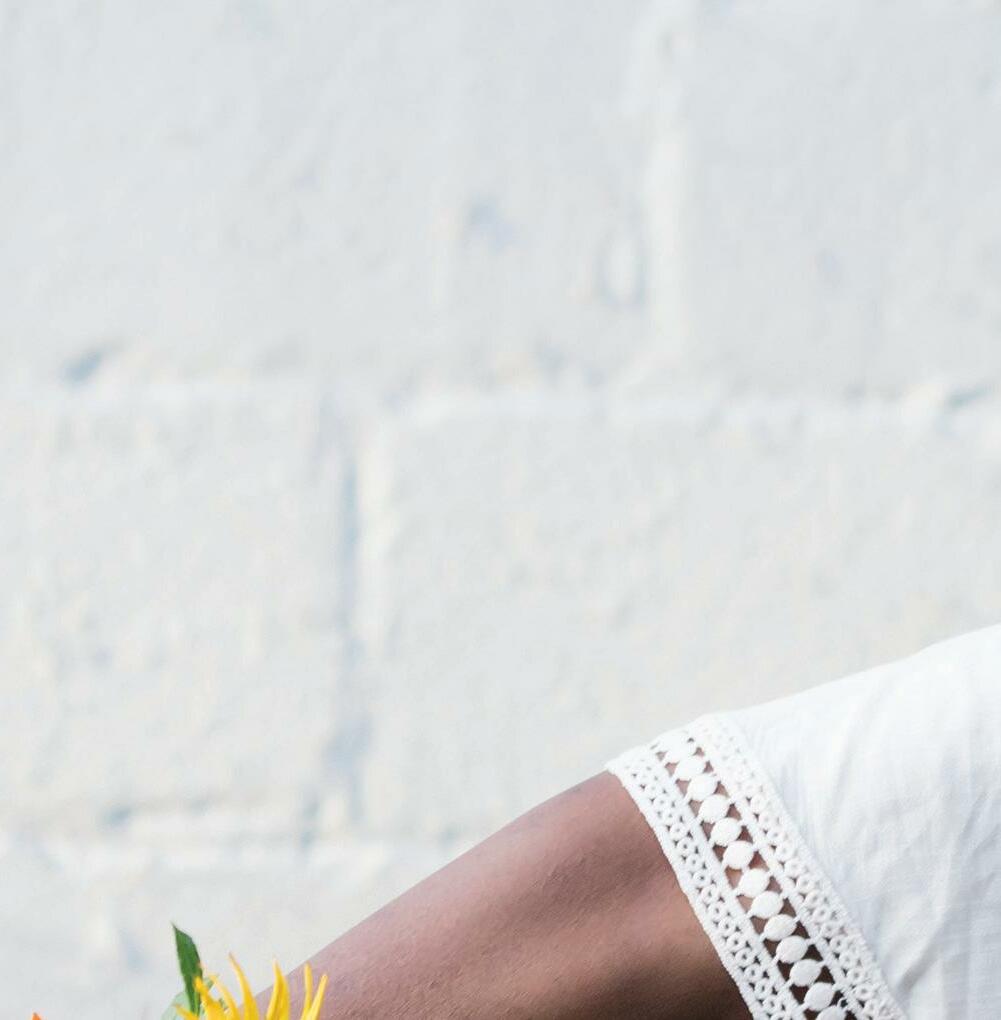
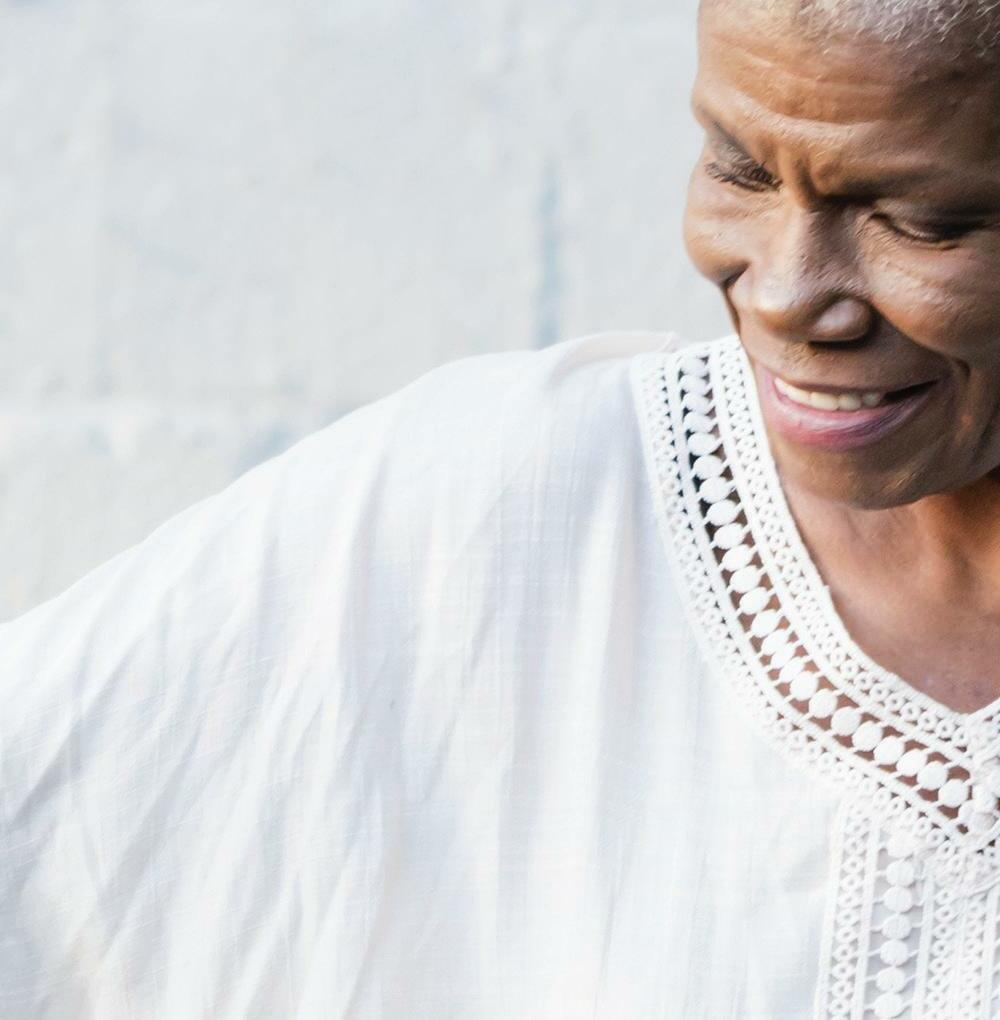







When you need treatment for spinal problems, even the thought of traveling out-of-state for care can be painful. At RWJBarnabas Health, our orthopedic surgeons and neurosurgeons work with you to create a personalized treatment plan, right in your own community. We offer non-surgical treatments in addition to the latest surgical techniques, such as reconstruction and minimally invasive robotic surgery. Learn more at rwjbh.org/spine
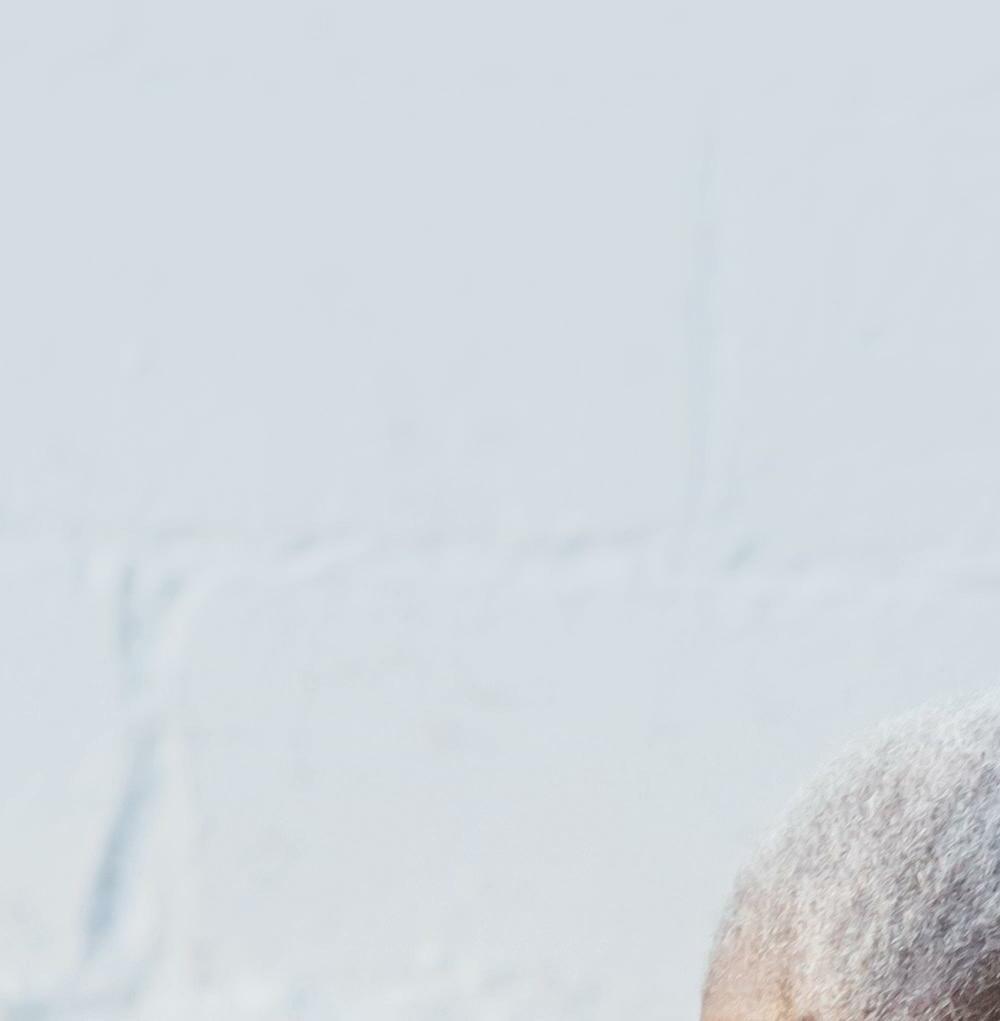
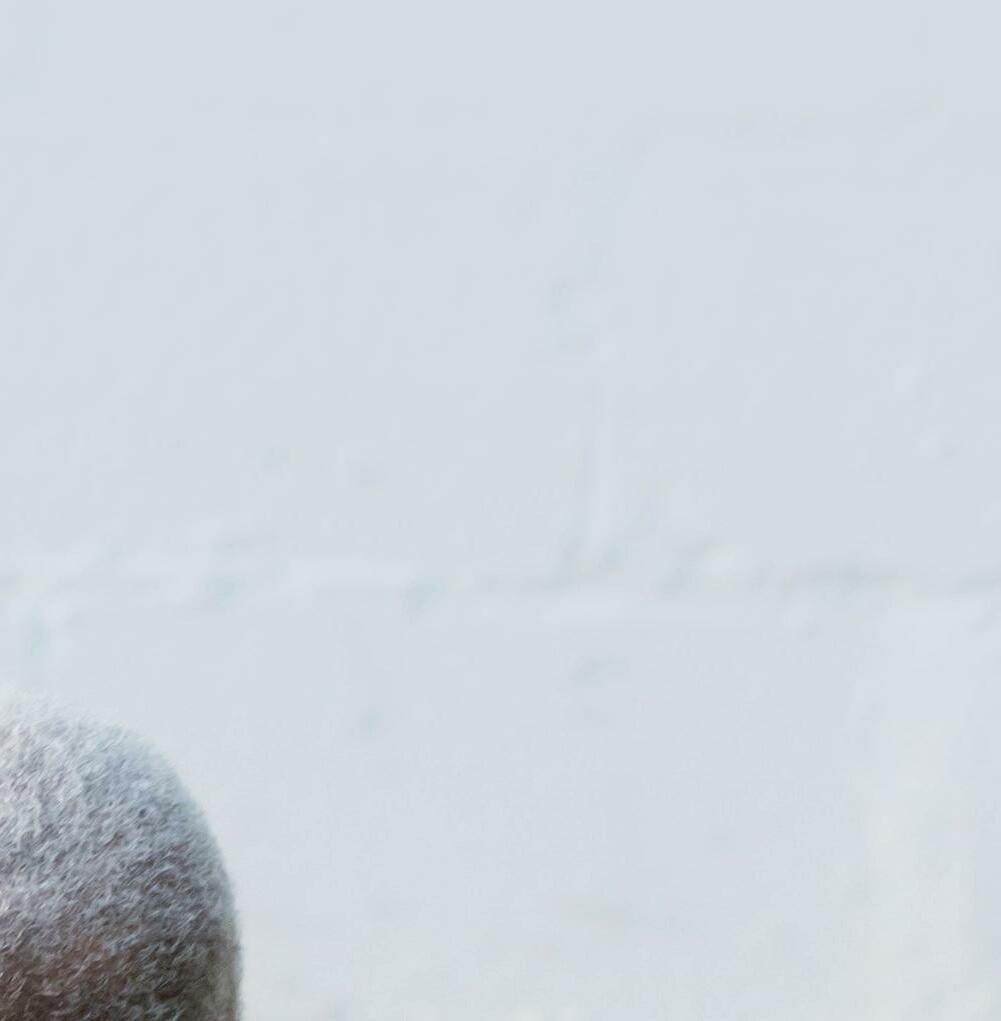
Find relief with our board-certified specialists just minutes away.
HOLIDAY BLUES?
HERE’S HOW TO COPE

Healthy Together | 10 | Fall 2022
WHY THE HOLIDAYS CAN BE AN EMOTIONAL MINEFIELD— AND WHAT YOU CAN DO TO HELP KEEP NEGATIVE EMOTIONS AT BAY
The days are getting shorter, the weather’s getting cooler and soon the holidays will be here. For some of us, the weeks and months leading up to the holiday season are filled with eager anticipation. But for many others, this time can be an emotional minefield fraught with crippling anxiety and depression. Here, psychiatrist Arnold Williams, MD, Medical Director of the Behavioral Health Center, part of RWJBarnabas Health’s Behavioral Health and Addictions Services, explains the link between the holidays and depression—and offers advice to help you cope.
Why do people get depressed around the holidays?
The holidays coincide with late fall and winter, when exposure to sunlight is decreased. This can have a profound effect on mood. In addition, many businesses slow or even shut down during the holidays, and, for some, that may mean fewer opportunities for social interaction.
Do the holidays tend to exacerbate existing depression?
The holiday season is a time of reflection and gift-giving, which can be rewarding for those in fortunate circumstances. However, isolation, separation from loved ones and anniversaries of loss can all worsen depression.
What’s the difference between being depressed and simply feeling sad?
7 WAYS TO COUNTERACT HOLIDAY DEPRESSION
According to RWJBarnabas psychiatrist Arnold Williams, MD, there are things you can do to mitigate depression:
1. Maintain contact with friends and family, if possible.
2. Get as much natural sunlight as you can.
3. Exercise—walk, run, move.
4. Practice yoga, mindfulness and meditation. They work!
5. Recognize that this too shall pass. You’ve survived all of the bad days you’ve had so far— that’s proof that things can get better again.
6. Don’t try to ease the pain with substances; it will compound the problem.
7. Know that you’re not alone. Reach out to a professional who can help you.
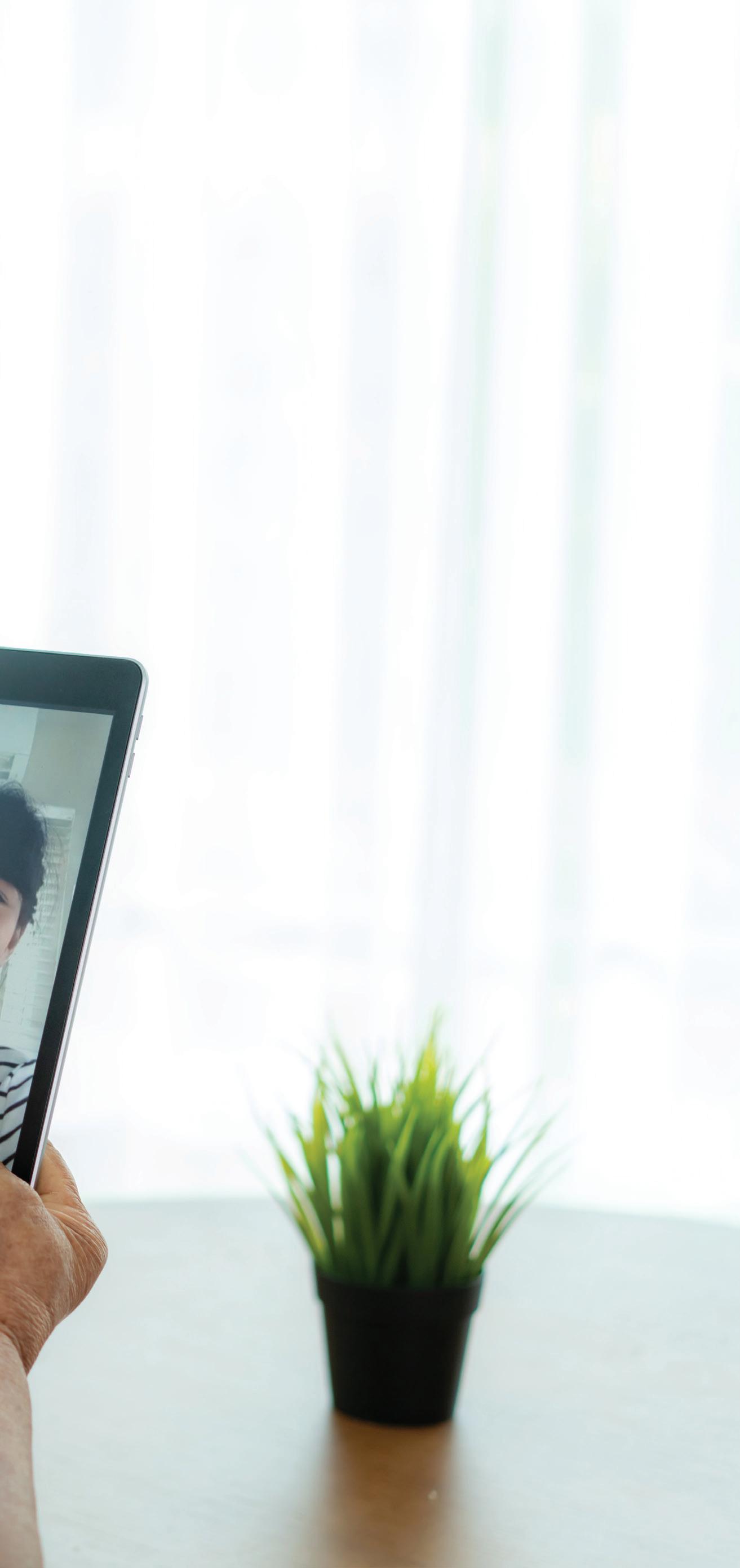
patterns and reduced self-esteem. At its most extreme, depression can include suicidal thoughts or feelings of not wanting to be alive.
Do depression and anxiety always go hand-in-hand?
They can happen together or separately. Philosophically, depression and anxiety are two sides of the same coin. Anxiety is an anticipatory “what if” reaction, dreading the unknown and fearing the worst. Depression is a conclusion that the worst is happening right now and may not ever get better.
ARNOLD A. WILLIAMS, MD

Depression implies a wide constellation of symptoms over several days or weeks. The emotion itself is only one component. Most commonly, that emotion is sadness, but there can also be anger, loneliness, worry or anxiety, as well as changes in thoughts and behaviors. Examples include losing interest in things you usually enjoy, a decrease in energy, changes in appetite or sleep
How does grief impact depression and vice versa? Grief can be a trigger for a relapse in depression, and a person who’s been depressed may experience a prolonged grief period. The holidays are difficult partly because they’re usually connected to memories of a lost loved one.
If you or a loved one are in need of mental health treatment, call our Access Center, open 24 hours a day, at 1.800.300.0628 to learn more about your mental health options or visit www.rwjbh.org/behavioralhealth .
RWJBarnabas Health | RWJBH.ORG | 11
HELPING YOU NAVIGATE YOUR CANCER JOURNEY
Being diagnosed with cancer is life-changing. It can have a profound effect on your psyche, leaving you feeling frightened, confused and overwhelmed. At the same time, you need to make calm, clear and timely decisions about important matters such as doctors and treatment options.
That’s why RWJBarnabas Health (RWJBH) and Rutgers Cancer
Institute of New Jersey, the state’s only National Cancer InstituteDesignated Comprehensive Cancer Center, developed the Oncology Nurse Navigation Program.
For a person with cancer, a nurse navigator is not just a valuable resource, but a smiling face and a caring individual to help you and your family maneuver the often uncharted territory of your cancer journey.
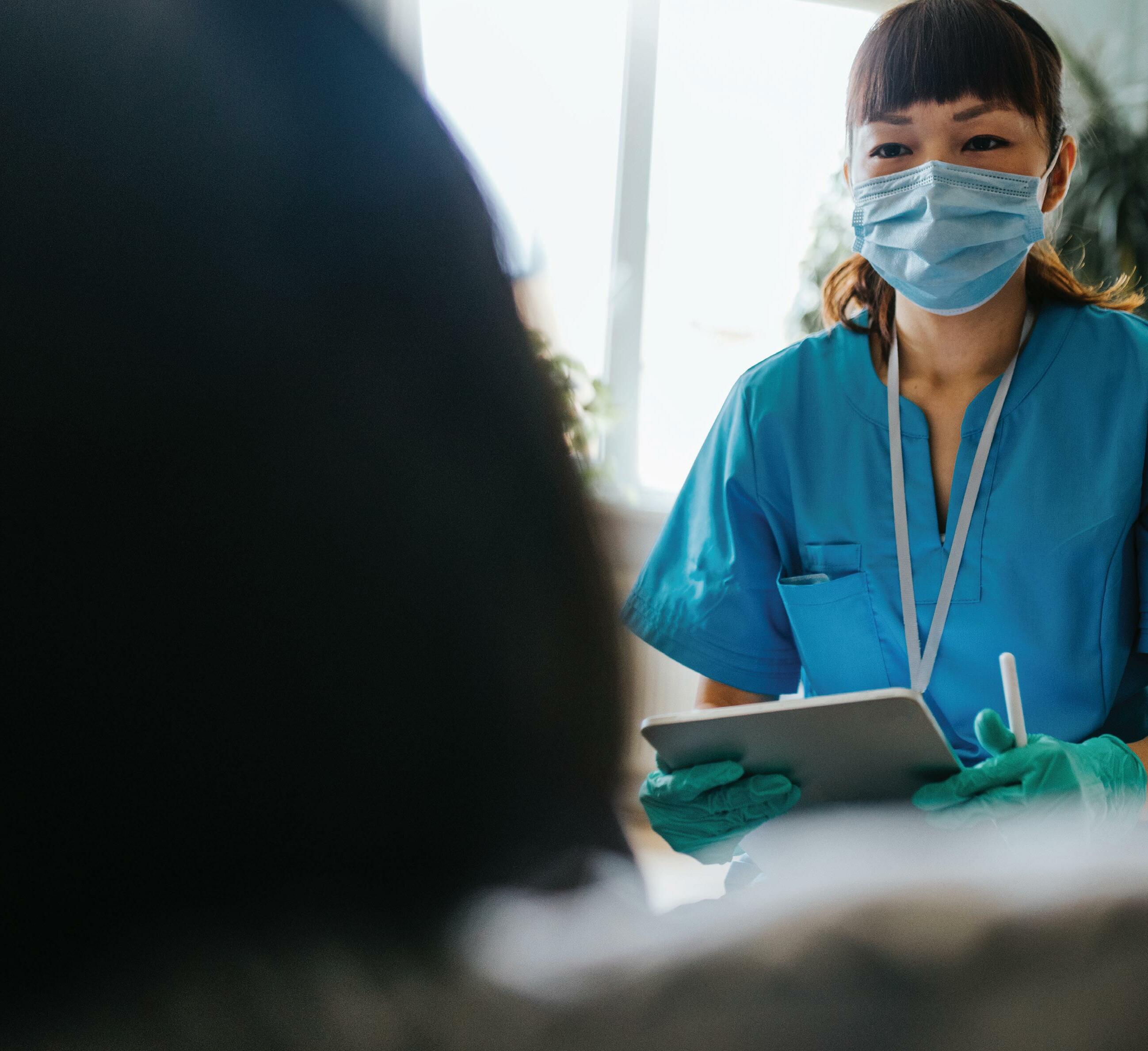
ONCOLOGY NURSE NAVIGATORS OFFER COMPREHENSIVE SUPPORT AND SERVICES TO PATIENTS AND THEIR CAREGIVERS.
Healthy Together | 12 | Fall 2022
Jeanne Silva, MSN, RN-BC, Assistant Vice President, Oncology Access and Nurse Navigation, Oncology Services, explains what the Oncology Nurse Navigation Program is and how it works.
What does the Oncology Nurse Navigation Program do?
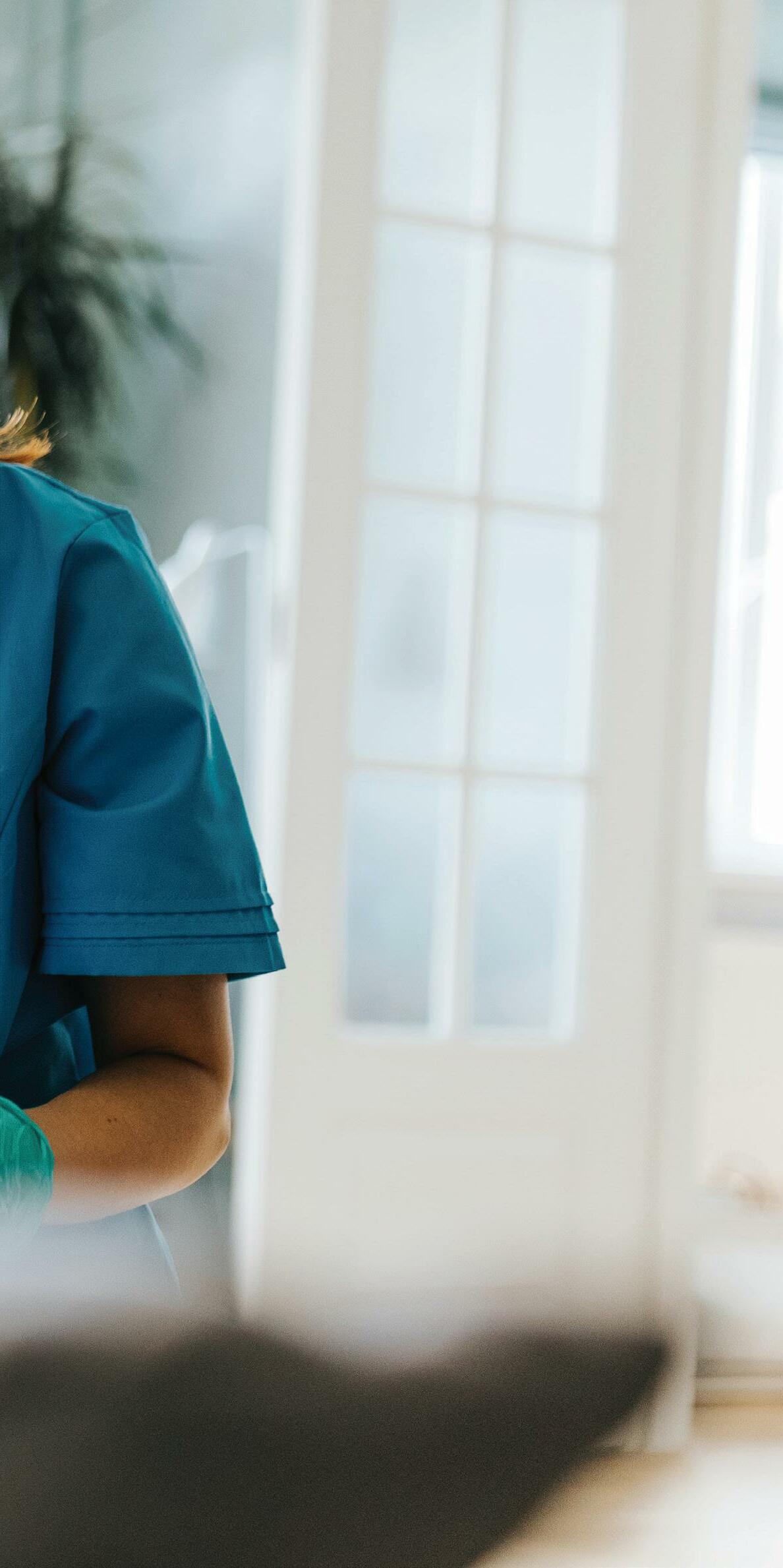
If you’re diagnosed with cancer and are a patient at RWJBH, the program
EACH NAVIGATOR BRINGS A WEALTH OF KNOWLEDGE, ENERGY AND EMPATHY. YOU’RE UNIQUE WITH YOUR OWN STORY, AND THE NAVIGATOR IS THERE TO LISTEN AND HELP.
places an expert at your side who advocates for you and provides direction, support and information through all phases of treatment at no additional charge. The nurse navigator is the hub of your care team, communicating your needs across departments and answering your questions about what to expect, what to do, where to go and why. Having a trusted, committed expert guiding
you helps you participate fully in treatment decisions, achieve quality outcomes and reduce stress.
When was the program developed, and how has it changed since its inception?
The RWJBH nurse navigation program began in 2018 with 18 navigators. Today we have 45 navigators and are growing. Oncology nurses receive navigationspecific training as well as ongoing education to improve care through measures such as shortening the time between diagnosis and meeting with an oncologist and improving access to palliative care.
Our program is the state’s largest. We routinely conduct quality improvement projects and have presented our outcomes nationally to share best practices. We are one team across our facilities. If you see an oncologist from Rutgers Cancer Institute, for example, but want to receive radiation therapy closer to home or need to see an RWJBH subspecialist, we help coordinate your care seamlessly between sites.
What are some benefits that patients might find surprising?
You’re quickly assessed for any barriers to care and provided resources to overcome them. Barriers often include lack of knowledge, transportation difficulties and financial hurdles. Helping you ease worries allows you to focus on getting well. One aspect is that anxiety and fear of the unknown sometimes prevent people from starting potentially life-saving treatments. We’ll assess this and provide support so you can get the right care. Or, for example, if you’re a candidate for a clinical trial, the navigator can educate you about that and connect you with a research team.
Each navigator brings a wealth of knowledge, energy and empathy. You’re unique with your own story, and the navigator is there to listen and help.
RWJBarnabas Health, in partnership with Rutgers Cancer Institute of New Jersey—the state’s only NCI-Designated Comprehensive Cancer Center—provides close-to-home access to the most advanced treatment options. Call 844.CANCERNJ or visit www.rwjbh.org/beatcancer.
RWJBarnabas Health | RWJBH.ORG | 13
ONE STEP AT A TIME
SPINA
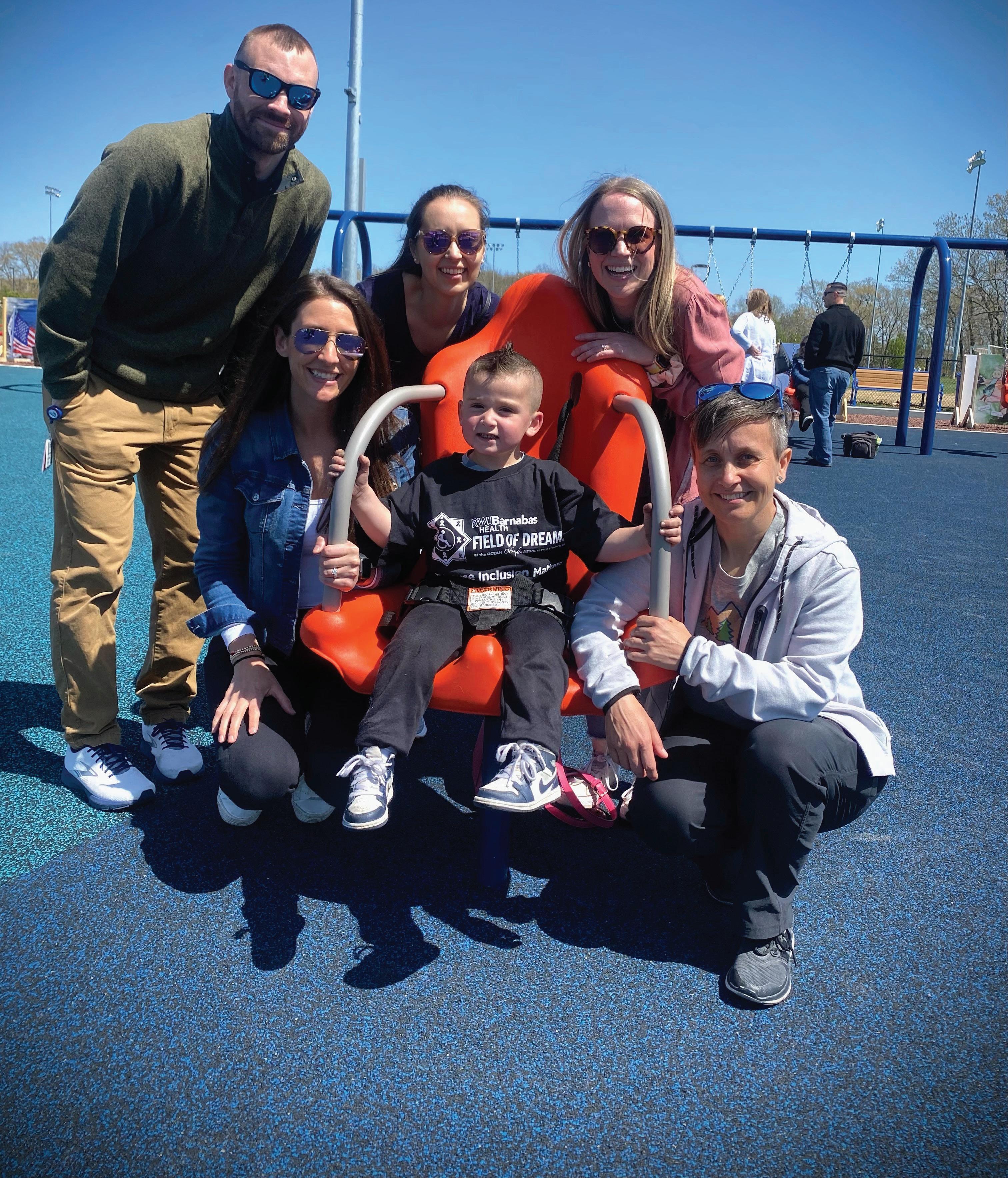
Healthy Together | 14 | Fall 2022
BIFIDA COULDN’T STOP LITTLE NIKOS. THE TEAM AT CSH WOULDN’T LET IT.
Nikos Kaymakcian is a happy little boy who loves pirates and practicing karate with his older brother, Arman. As he approaches his fourth birthday, his parents, Nicole and AJ Kaymakcian, can’t help but wonder how their lives might be different if they hadn’t sought a second opinion when Nicole was pregnant with Nikos. It was then, at their 20-week ultrasound, that Nicole and AJ were told that their son has spina bifida, a neural tube defect (NTD) that often results in spinal cord and nerve damage. “The doctor told us that our son would never walk or be able to use the bathroom on his own and would require a shunt to drain fluid from his brain,” Nicole recalls. In one fell swoop, their hopes and dreams for their baby came crashing down.
But a friend whose child had received a similar diagnosis recommended that

Nicole contact her neurosurgeon for a second opinion. After examining Nicole and her baby, the doctor told Nicole to go home and enjoy her pregnancy. “He said, ‘When your son is born, we’ll do surgery and take it from there,’” she remembers. And that’s what happened.
In October, 2018, Nicole gave birth to Nikos at Monmouth Medical Center, and the neurosurgeon performed the baby’s surgery the following day. Before his first birthday, Nikos began early intervention with physical therapy at Children’s Specialized Hospital (CSH), part of the Children’s Health Network
at RWJBarnabas Health.
CSH physical therapist Tara Iannello, who has been working with Nikos since then, “is an angel,” says Nicole. Nikos also works with physical therapist Natalie Vulpis. “She gives Nikos a push when he doesn’t want to do something and has also been a great fit for him,” says Nicole.
The CSH physical therapists go out of their way, not only to provide great care, but to customize it and make it fun. “Last year, Nikos loved superheroes,” says Nicole, “so Tara set up superhero action figures in stations so he had to practice walking to each one.”
Though Nikos has some weakness in his ankles and feet due to nerve damage, he’s on par with all other milestones for his age and, says his mom, “he’s now walking with braces and his walker, taking steps on his own.
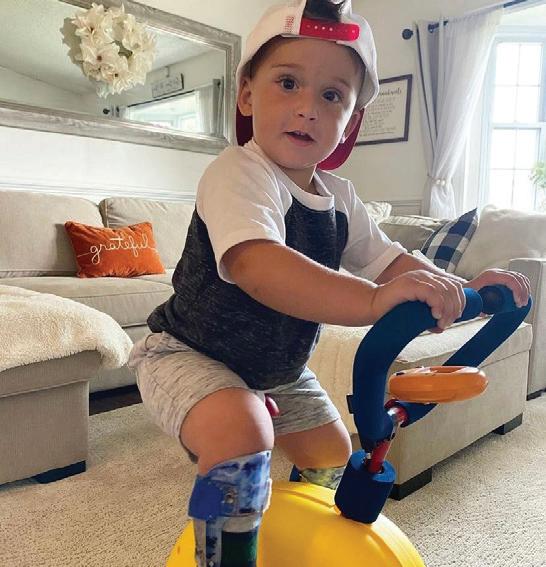
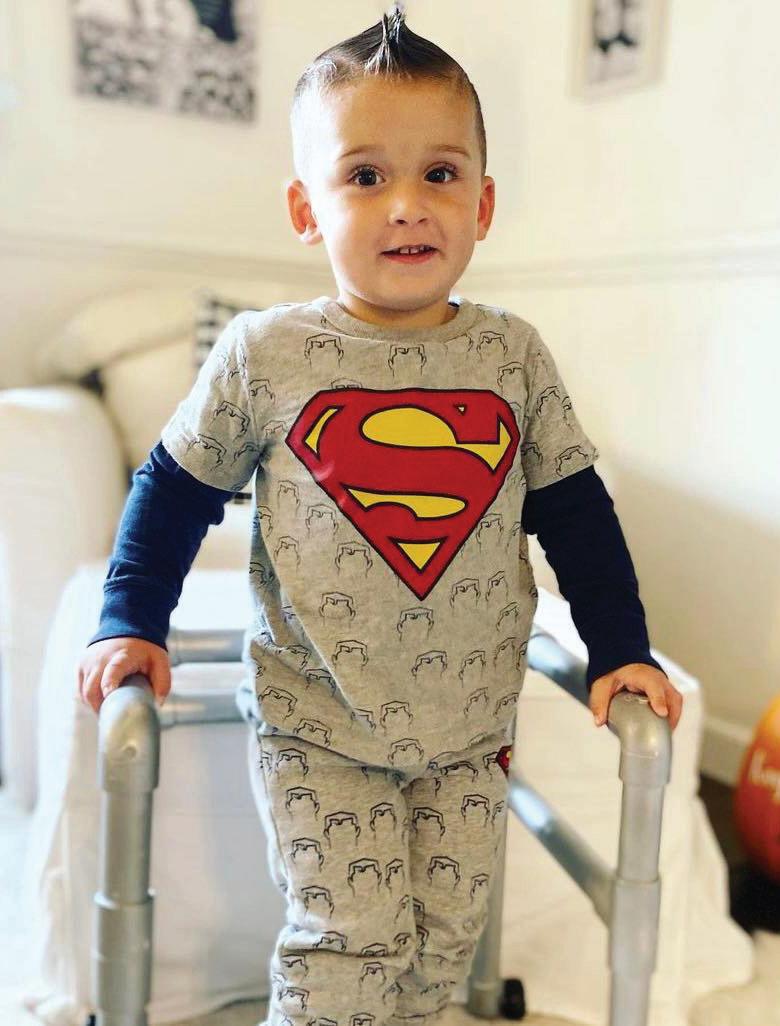
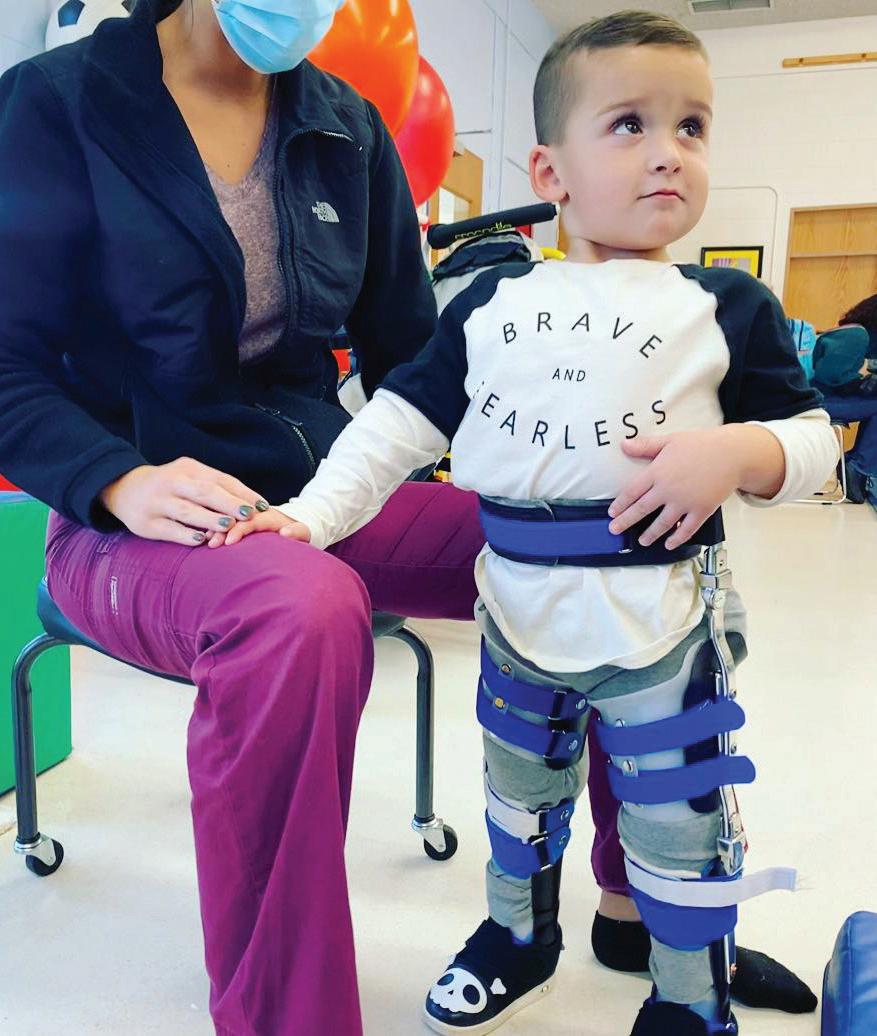
“I can’t say enough good things about what the people at CSH have done for my son. We’re so blessed.
We love them with all our heart.”
The feelings are mutual. “He’s such a sweet and funny kid, and he’s gotten so strong,” Iannello says of Nikos. “We have no doubt that he’s going to do great things in this world.”
Clifton, East
and West Orange.
RWJBarnabas Health | RWJBH.ORG | 15 Thanks to the dedicated care and support of his physical therapists (previous page) at CSH, the love of his parents and his own indomitable spirit, Nikos Kaymakcian, who was born with spina bifida, continues to make great strides. To learn more about outpatient programs and services at Children’s Specialized Hospital, visit rwjbh.org/cshoutpatient or call 888.244.5373
At Children’s Specialized Hospital, we provide world-class care for children and young adults who face special health challenges across the state of New Jersey and beyond. We treat everything from chronic illnesses and complex physical disabilities, like brain and spinal cord injuries, to a full scope of developmental, behavioral and mental health concerns. We have convenient locations throughout the state: Bayonne,
Brunswick, Eatontown, Egg Harbor Township, Hamilton, Jersey City, New Brunswick, Newark, Somerset, Toms River, Union
THE LOWDOWN ON LOW-DOSE ASPIRIN
WHAT YOU NEED TO KNOW ABOUT THE LATEST GUIDELINES FOR HEART ATTACK AND STROKE PREVENTION
For years, taking a daily low-dose aspirin for the prevention of heart attack and stroke has been a widely accepted practice. But the U.S. Preventive Services Task Force (USPSTF) recently issued updated guidelines recommending against its use in certain patients for primary prevention of heart disease. Here, cardiologist Jeffrey S. Lander, MD, Co-Director of Sports Cardiology at RWJBarnabas Health, Co-Medical Director of the Cardiac Care Unit at Cooperman Barnabas Medical Center and a member of RWJBarnabas Health Medical Group, explains.
How are the new guidelines different from the previous guidelines?
This is a big change from the 2016 guidelines, which recommended using aspirin for primary prevention in adults aged 50 to 59 who were at risk for cardiovascular disease, and to consider its use for certain adults aged 60 to 69 who were at risk for cardiovascular disease.
What prompted these new recommendations?
recent stent procedure. If someone has that history, it’s generally beneficial to take a low-dose daily aspirin as it helps reduce the risk of recurrent cardiac disease or events.
If someone has been following a lowdose aspirin regimen for years, what should they do?
JEFFREY S. LANDER, MD

The 2022 guidelines state that using aspirin in select 40to 59-year-olds may have some benefit in preventing heart disease, but it is not recommended for people aged 60 and older.
Older trials of aspirin use for primary prevention showed benefits—for example, reduction in heart attacks. However, more recent studies did not show a significant reduction in cardiovascular disease. In addition, many of these trials also showed significant risk of internal bleeding among those taking daily aspirin. Given these findings, the recommendations changed.
Are there exceptions to the new guidelines?
It’s very important to remember that these recommendations don’t pertain to patients with a prior history of heart attack, stroke, bypass surgery or a
In that case, it’s important that they speak to their doctor or healthcare provider before making any changes. All of the risks and benefits should be weighed prior to stopping aspirin. Most of the time when aspirin is to be stopped, it’s OK to simply stop; a stepdown approach isn’t needed.
How will the new guidelines change your recommendations to patients?
I feel that most of the latest evidence is in support of the new guideline recommendations.
Each patient is unique, and when recommending to either use or not use aspirin for primary prevention of heart disease, the risks and benefits should be discussed and weighed by doctor and patient to make an individualized plan.
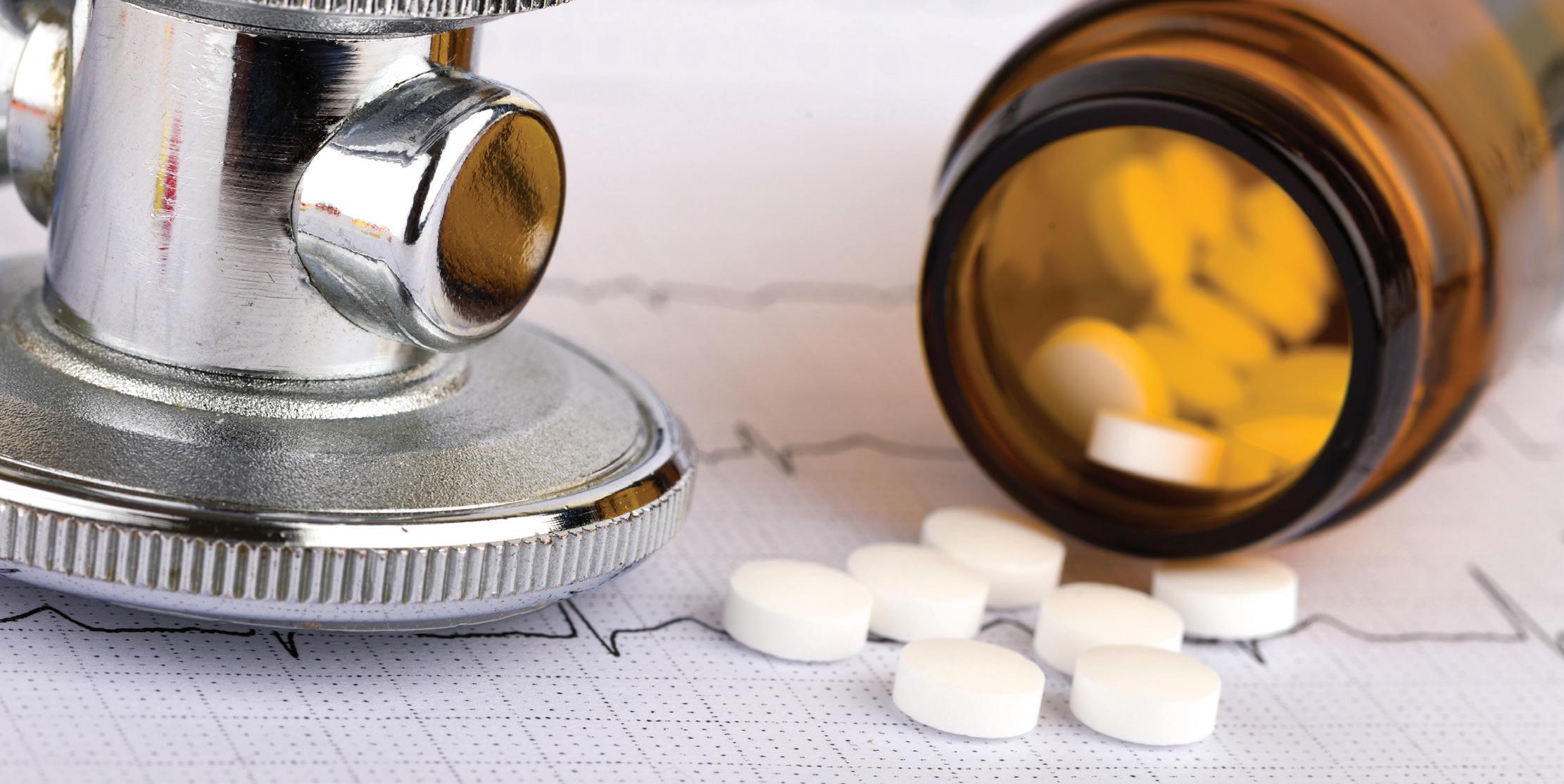
Whoever your heart beats for, our hearts beat for you. To connect with a top cardiovascular specialist at RWJBarnabas Health, call 888.724.7123 or visit www.rwjbh.org/heart
Healthy Together | 16 | Fall 2022
Kathleen Toomey, MD (white coat), and Tony Cava, President and CEO, RWJUH Somerset (far right), accept one of many donations that Bound Brook Women of the Moose have made to the Steeplechase Cancer Center since 2010.
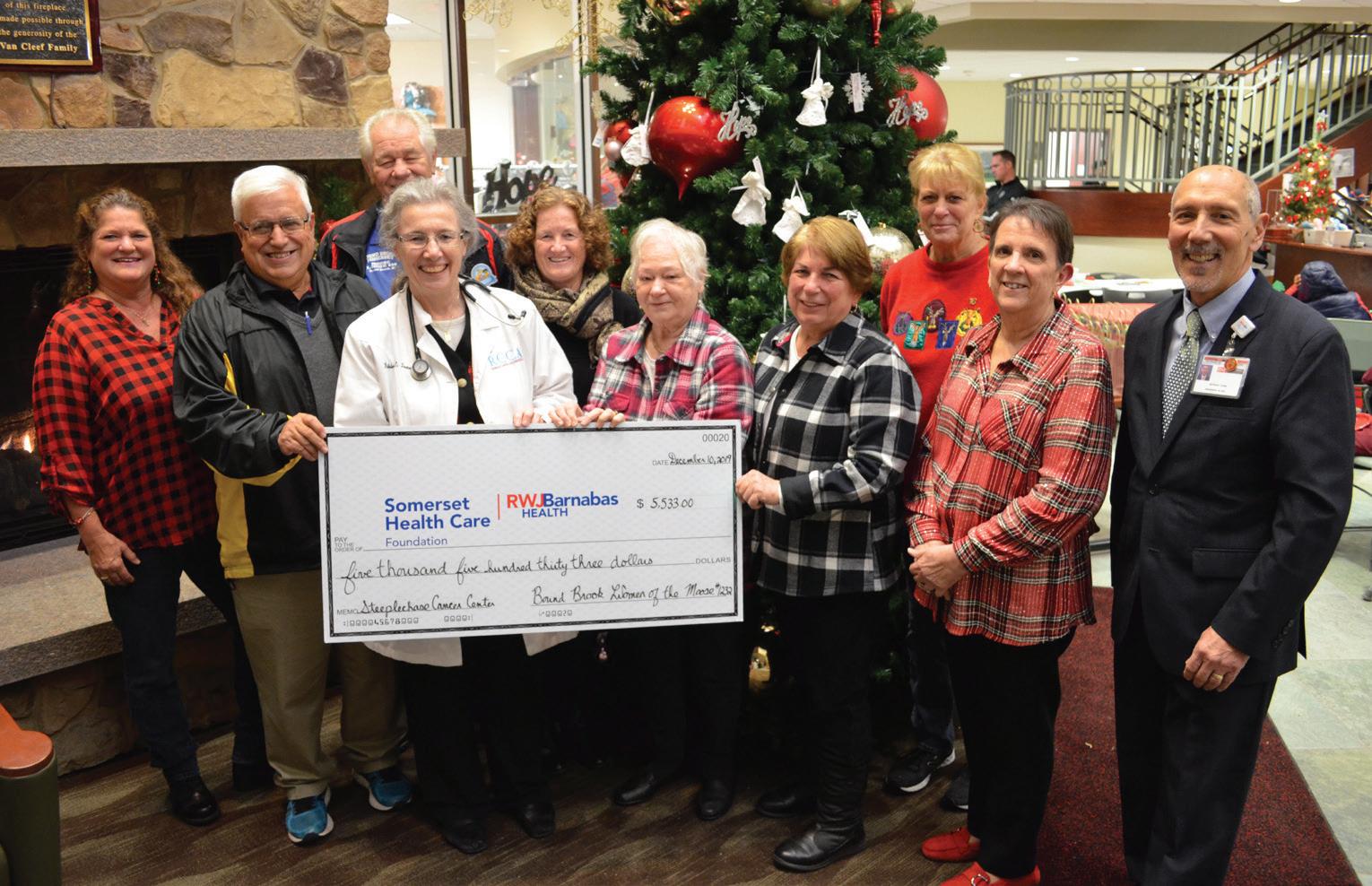
BOUND TO HELP
INSPIRED BY A MEMBER’S NEEDS, AN ORGANIZATION HOLDS A FUNDRAISER TO SUPPORT CANCER PATIENTS.
It’s a testament to the impact one life can have. An annual fundraiser that Bound Brook Women of the Moose (WOTM) holds to support the Steeplechase Cancer Center at Robert Wood Johnson University Hospital (RWJUH) Somerset began in 2010 as a response to a member of the organization who was battling cancer.
At the time of the woman’s illness, the group spearheaded a fundraiser for her and her family. “We raised over $5,000 that first year, but she tragically passed away in May 2010,” says Dorothy Ponte, Bound Brook WOTM treasurer. “After that, a lot of members discussed doing something on an annual basis.”
Women of the Moose is a unit of Moose International, a fraternal organization that provides social, educational and community service opportunities to members. The Bound Brook chapter historically has supported initiatives of the national organization, including a school in Illinois and a retirement facility in Florida.
“We wanted to get involved with something closer to the local community that impacted more of our members,” Ponte says. Creating a local cancerrelated event “was something we really
RWJBarnabas Health and Robert Wood Johnson University Hospital Somerset, together with Rutgers Cancer Institute of New Jersey—the state’s only NCI-Designated Comprehensive Cancer Center—provide close-to-home access to the latest treatment options. For more information, call 844.CANCERNJ or visit www.rwjbh.org/beatcancer.
wanted to focus on,” she says. “It’s been a priority ever since.”
SPAGHETTI AND MORE
Each year during October, Breast Cancer Awareness Month, Bound Brook WOTM holds an open-to-the-public spaghetti dinner. The event includes a tricky tray fundraiser in which attendees can buy chances to win gift baskets of varying value filled with contributed items. You don’t have to be present to win—or give. “We often get donations after the event,” Ponte says. “So if you didn’t attend on October 1, there’s still an opportunity to make a donation.”
In 2020, the event wasn’t held due to the COVID-19 pandemic, but the resurgent 2021 dinner raised more than $7,000—“more than we expected,” Ponte says. Over the years, Bound Brook WOTM has donated about $62,000 to the Steeplechase Cancer Center. “One hundred percent of donations go to the hospital,” Ponte says.
“The Steeplechase Cancer Center offers access to subspecialties such as surgery, gynecologic oncology and
From left: Paul Hubert, Chair, Somerset Health Care Foundation; Bill Arnold, Executive Vice President, RWJBarnabas Health Southern Region; Josh Kalafer, Chair, Somerset Health Care Foundation Golf Classic and member, Somerset Health Care Foundation Board of Trustees; and Tony Cava, President and CEO, RWJUH Somerset.
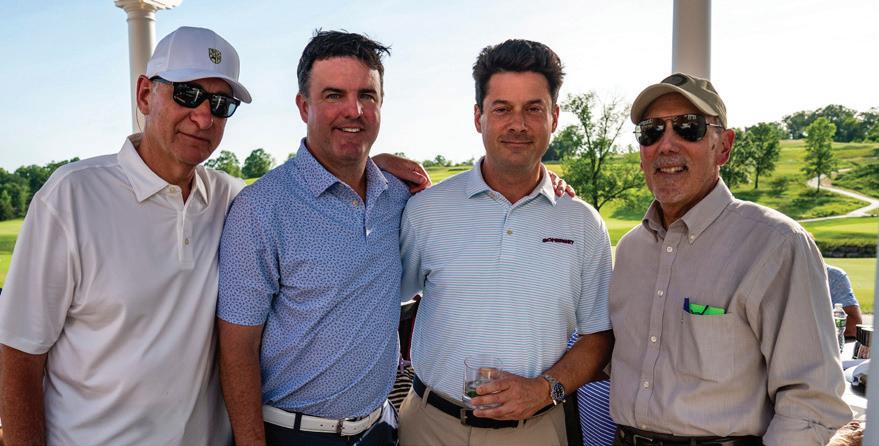
A BEST-EVER GOLF OUTING
On June 6, Somerset Health Care Foundation hosted its most successful Golf Classic ever, raising more than $300,000 to support Robert Wood Johnson University Hospital Somerset. A total of 136 golfers participated in the event at Hamilton Farm Golf Club in Gladstone. Title sponsors were Flemington Car and Truck Country, Clinton Honda, Jaguar Land Rover Princeton and the Somerset Patriots.
radiology all in one place, along with a boutique where patients can purchase items related to cancer care such as wigs, bras and compression garments,” says Kathleen Toomey, MD, Medical Director of the Steeplechase Cancer Center and a hematologist/oncologist with RWJBarnabas Health Medical Group. “Deeply appreciated support from Bound Brook Women of the Moose helps advance our joint mission to ensure access to stateof-the-art cancer care in our community.”
“Members dedicate countless volunteer hours each year to chapter initiatives and community endeavors like this,” Ponte says. “We’re happy to support services at the Steeplechase Cancer Center.”
If your group is interested in hosting a fundraising event to benefit Robert Wood Johnson University Hospital Somerset, contact Somerset Health Care Foundation at 908.685.2885 .
Robert Wood Johnson University Hospital Somerset RWJBH.ORG/SOMERSET | 17
When diagnosed with breast cancer, Evelyn Sanchez worried about her children, Fabian (left) and Camila, but personalized treatment and support eased her concerns.
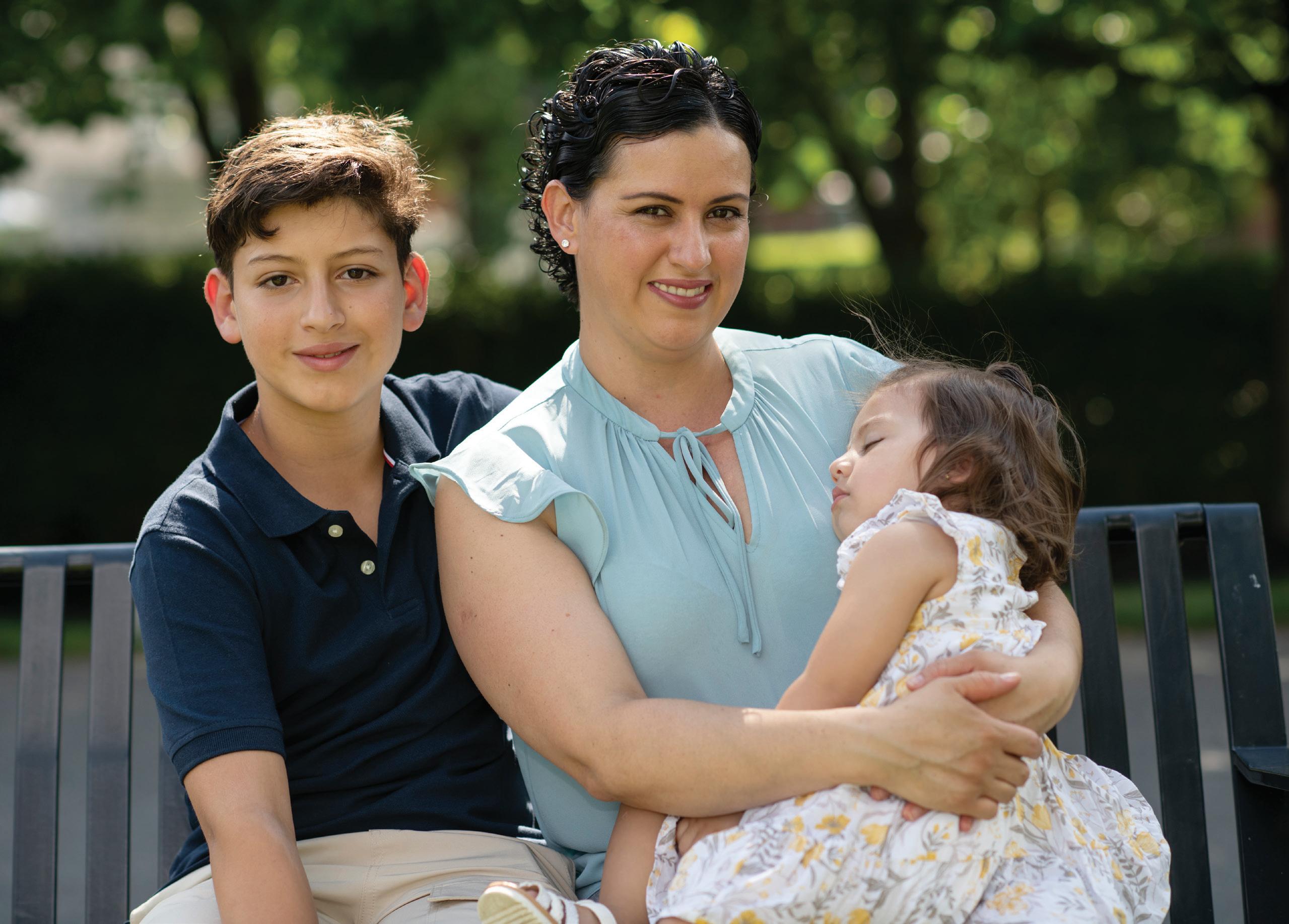
TREATABLE’ ‘MY CANCER WAS
WITH THERAPIES AND SUPPORT, A WOMAN JOINS
GROWING RANKS OF BREAST CANCER
Evelyn Sanchez was watching a movie one evening in April 2021 when she casually scratched an itch. The now-35year-old Bound Brook resident jolted to attention when her fingertips ran over a lump below the skin of her right breast.
The discovery marked the
beginning of an odyssey. First came the startling diagnosis: Sanchez had stage 2 breast cancer and tested positive for HER2, a protein that promotes the growth of cancer cells.
Terrifying for anyone, Sanchez’s breast cancer was also disturbingly uncommon for a woman her age. An estimated 1 in 8 women in the United States will be diagnosed with breast cancer in their lifetime, but women in their 30s develop the disease relatively rarely, according to the National Cancer Institute.
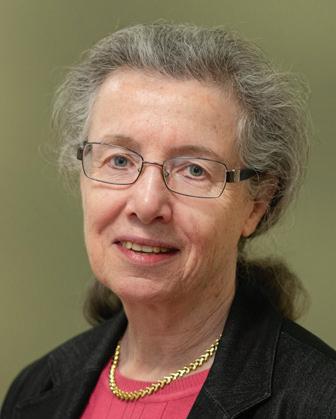 KATHLEEN TOOMEY, MD
KATHLEEN TOOMEY, MD
THE
SURVIVORS.
Healthy Together | 18 | Fall 2022
“I cried a lot, thinking of both my kids,” says Sanchez, who is the mother of a 12-year-old boy and a baby daughter who had been born just five months before she discovered her lump. “I was scared I was going to die. But my doctors told me my cancer was treatable.”
PATIENT SUPPORT
For the next phase of her odyssey, Sanchez chose to be treated at Robert Wood Johnson University Hospital (RWJUH) Somerset’s Steeplechase Cancer Center on the recommendation of a cousin who had been successfully treated there. Kathleen Toomey, MD, Medical Director at the center and a hematologist/oncologist with RWJBarnabas Health Medical Group, laid out a stepwise treatment plan for Sanchez.
It started with 12 weeks of chemotherapy to shrink Sanchez’s tumor. Sanchez also enrolled in a clinical trial that aims to determine whether patients with HER2-positive breast cancer can reduce their odds of needing further chemotherapy after surgery by adding two HER2-targeted drugs to standard chemotherapy.
“Clinical trials are important because in order to continue improving cancer cure rates, you have to keep trying new approaches,” Dr. Toomey says.
Sanchez went through a period of coping with treatment-related side effects such as fatigue, mouth sores and hair loss that can make handling the details of care challenging. Kimberly Cromwell-Piniella, BSN, RN, CBCN, OCN, a breast cancer nurse navigator at Steeplechase Cancer Center, stepped in to help.
“Our nurse navigator has the compass, helping patients navigate through the system and get the treatment they need, while adding education about what’s happening to them,” Dr. Toomey says.
“I didn’t have a mind for making appointments, and the nurse navigator helped me with all of that,” Sanchez says. “I was lucky to have such a good team.”
Next came a lumpectomy procedure in September 2021 performed by breast surgeon Deborah Lue, MD, to remove the cancerous growth and lymph nodes
near the breast, followed by radiation therapy with radiation oncologist Laura Bond, MD, and reconstructive surgery by plastic surgeon Colin Failey, MD. Throughout treatment, Dr. Toomey became “like a friend,” Sanchez says— calming her fears and reassuring Sanchez that a mastectomy to remove her entire breast wasn’t necessary to beat the disease.
“Doing more isn’t necessarily better,” Dr. Toomey says of highly personal decisions about which surgical approach to take. “Lumpectomy can offer many women a better cosmetic result than more drastic procedures without affecting survival odds. We support our patients as much as we can.”
Sanchez found additional support through the Steeplechase Cancer Center’s Sanofi US Wellness Boutique, which offers items specific to cancer patients such as wigs, prostheses and post-recovery bras and pillows. Other support offered through the center includes scalp-cooling treatment to prevent hair loss for those undergoing chemotherapy.
Finally, when doctors found tiny quantities of cancer cells remaining in Sanchez’s breast after surgery, additional chemotherapy was combined with the anti-HER2 treatment involved in the clinical trial. Sanchez wrapped up her yearlong regimen in spring 2022.
“There’s every reason to think she’s going to be fine,” Dr. Toomey says. “Breast cancer treatments are highly successful these days because we know more about how to treat them, we’re continuing to do research and outcomes get better and better.”
INSPIRED TO HELP OTHERS
Steeplechase staff will monitor Sanchez for years. As part of a “survivorship prescription,” she learns about potential short- and long-term side effects from her array of treatments along with redflag symptoms to watch for and tests she may need. She’ll continue to schedule
THE ADDED BENEFITS OF CLINICAL TRIALS
Through the partnership of Robert Wood Johnson University Hospital Somerset’s Steeplechase Cancer Center and Rutgers Cancer Institute of New Jersey, the state’s only NCIDesignated Comprehensive Cancer Center, patients have access to the latest clinical trials. Potential benefits include:
• Working with top specialists who conduct research and are highly knowledgeable about the latest treatments.
• Being offered cutting-edge treatments not yet available to the general population that may help you live longer and/or improve your quality of life.
• Playing a meaningful role in a study that could help other patients in the future.
regular mammogram screenings and clinical breast exams.
Sanchez’s positive experience at Steeplechase Cancer Center has inspired her to pay it forward. With support from her husband, Jason, and children, Fabian and Camila, she plans to become a medical assistant.
RWJBarnabas Health and Robert Wood Johnson University Hospital Somerset, in partnership with Rutgers Cancer Institute of New Jersey—the state’s only NCI-Designated Comprehensive Cancer Center—provide close-to-home access to the most advanced treatment options. Call 844.CANCERNJ or visit www. rwjbh.org/beatcancer.
“I want to help other people, especially those who don’t speak English,” says Sanchez, a native of Costa Rica whose first language is Spanish. “It’s hard to have this diagnosis and not understand what has happened. I also just want to live day by day and make more memories with my family.”
Robert Wood Johnson University Hospital Somerset RWJBH.ORG/SOMERSET | 19
Glenn Peterson sees firsthand how patients benefit from the blood he regularly donates.
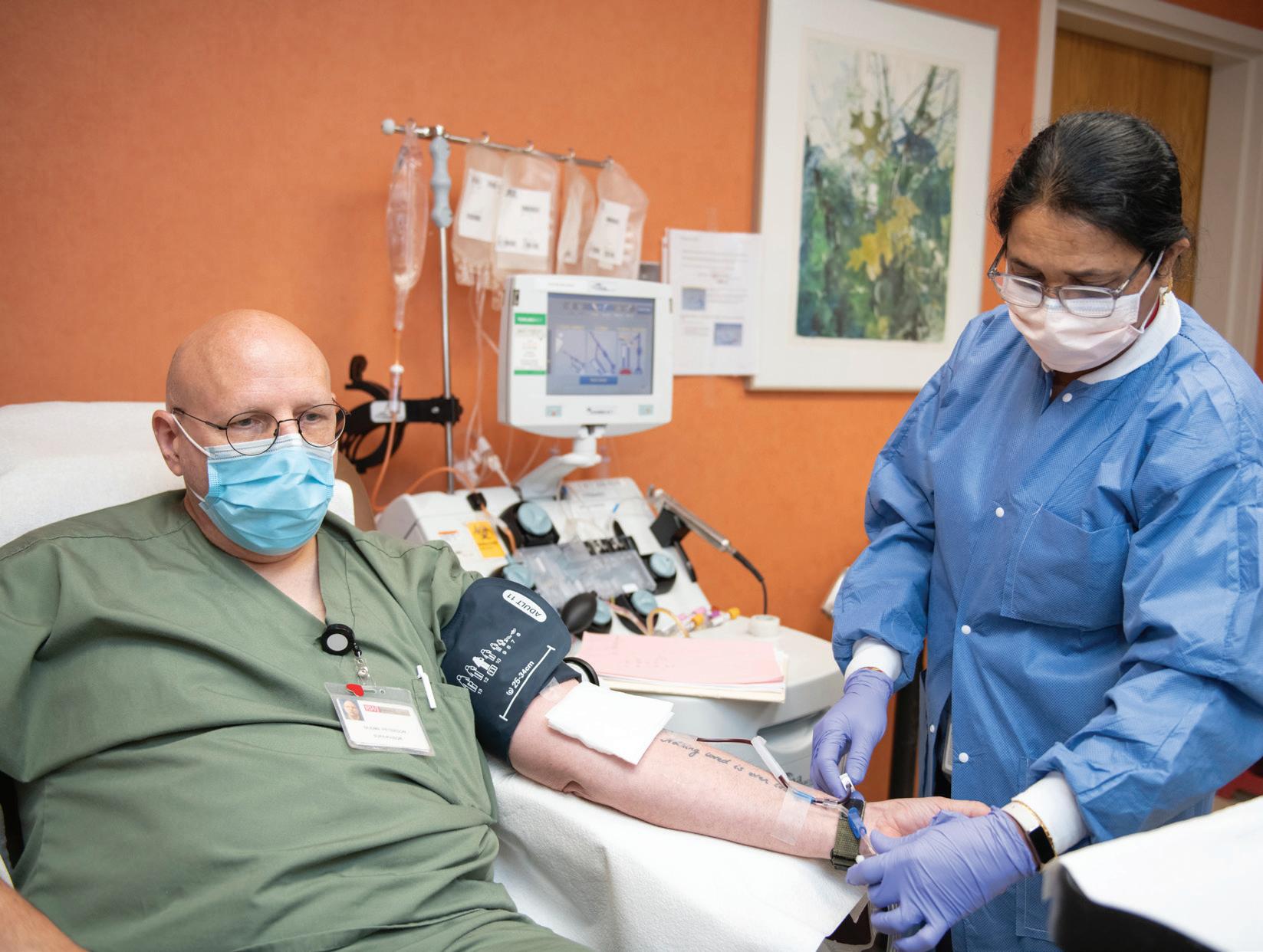
GIVING THE GIFT OF LIFE
THESE DONORS KNOW THAT BLOOD IS NEEDED NOW MORE THAN EVER.
Every two seconds, someone in the U.S. needs a blood transfusion, according to the American Red Cross. Yet stores of lifesaving blood are dangerously low.
COVID-19 is partly to blame. Blood drives at workplaces and schools were suspended during the pandemic, and the prevalence of people infected with COVID has lowered the number of potential donors available at any given time, says Nicole Greco, recruiter of blood services at
Robert Wood Johnson University Hospital (RWJUH) Somerset.
The hospital is one of only a handful in New Jersey that have their own blood donor programs in which collected blood is used for patients within the hospital system. “When you donate here, it stays in the community,” Greco says. “It’s neighbor helping neighbor.”
Many donors feel a sense of goodwill when they give blood. “It’s nice to be part of something greater and have a big
impact,” Greco says. “We waste no blood, so when you donate, it’s guaranteed to help others or save lives.”
Donors receive other benefits as well. “You get a mini-physical when you give,” Greco says. “We check your blood pressure and cholesterol, and make sure you have enough iron. Some people really appreciate that.”
If you’d like to donate blood but were told you couldn’t in the past, you may find that you’re now eligible. “In response to the pandemic and anticipated shortages, the FDA and the CDC made a number of changes to some long-standing rules,” Greco says. “We encourage people who were turned away in the past to please give us a call.”
Two people who often make that call describe how they got started—and why they feel it’s vital to continue.
DONATING FOR LIFE
Former New Jersey State Senator Kip Bateman has faithfully rolled up his sleeve to donate blood for years, starting when he was in high school. “I went to a blood drive and kind of got hooked,” he says.
The habit carried over to Bateman’s college days and a career as an attorney and public servant. “It’s something I have focused on all my life,” he says. “I always felt good about giving.”
His drive to give has also been bolstered by his longtime connection
Healthy Together | 20 | Fall 2022
with RWJUH Somerset, where he served on the hospital board of directors for several years, following the lead of his grandfather and father. “I was born at RWJUH Somerset, and all my kids were born there,” he says. “It’s a special place for me.”
Through his work with the Branchburg Rotary Club, Bateman even helped the hospital acquire an automated blood collection system, which separates blood into its components—platelets, red blood cells and plasma. These are critical for certain cancer treatments, to treat certain blood disorders and for treatments to stop internal bleeding.
In 2016, Bateman also started organizing blood drives at the Steeplechase Cancer Center. Having given 30 gallons of his own blood, he stands as the hospital’s biggest donor. “It’s nice when you can do something that’s positive and give back to people who really need it,” Bateman says.
GIVING BY THE GALLON
As a senior phlebotomist at RWJUH Somerset, Glenn Peterson is responsible
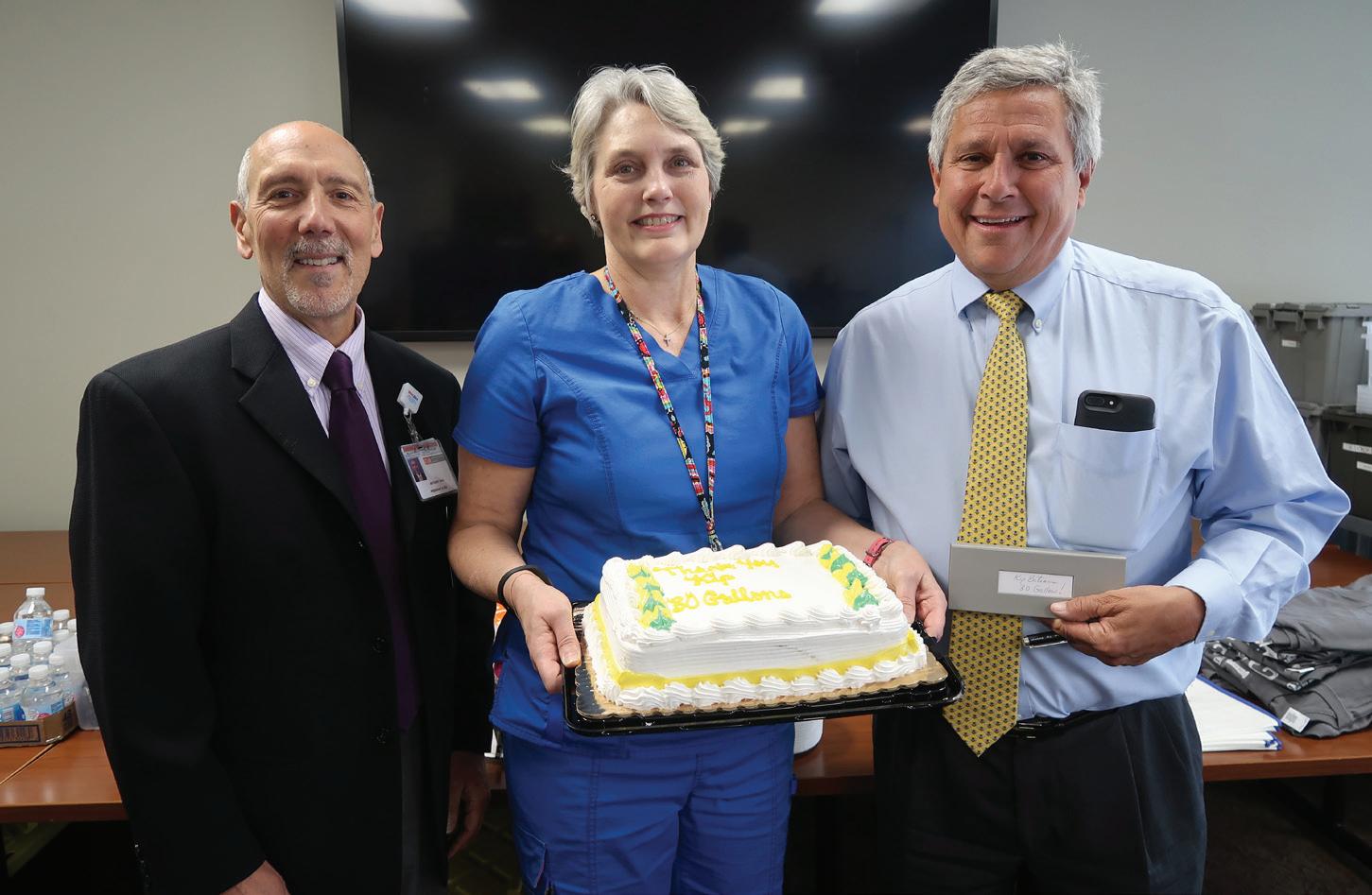
for collecting patients’ blood. The job gives him intimate knowledge of the lifesaving role that donated blood can play in helping patients. “I’ve seen sick patients getting blood,” he says. “So many people need it.”
Peterson regularly donated in past jobs and has continued to do so during his 13 years at the hospital. He has cumulatively donated 25 gallons of blood. “I feel strongly about it,” he says. “I’m also an organ donor, so when I’m no longer privileged to be here, they can have my organs and save more people’s lives. With blood, it’s something I can give while I’m still around.”
Peterson typically donates platelets every four weeks through the hospital’s automated collection system, which, after separating blood into its components, returns the remaining fluids to the donor through sterile tubing.
If you’re hesitant or uncertain about blood donation, Peterson suggests trying it just once. “If it’s not right for you, that’s OK,” he says. “But you know that you are helping somebody, and that feels good.”
BLOOD DONATION: FREQUENTLY ASKED QUESTIONS
Who can donate blood?
Most people who are 17 (16 with parental consent) or older, are in good health and weigh at least 110 pounds can donate blood in New Jersey.
Is anyone ineligible?
You can’t give blood if you have certain conditions, including HIV and tuberculosis, or if you’ve ever had hepatitis B or C. People taking blood thinners also are not eligible. You may have to wait a few weeks or months to give blood after receiving certain immunizations or medications. Before you donate, you’ll be asked about your lifestyle, medical history and recent travel to screen for these factors.
What if I had COVID?
You can still be a donor but must wait until COVID-19 or other infections have cleared before giving.
How about diabetes?
You can give blood if you have a chronic condition such as diabetes and some heart conditions, but you should be receiving treatment and have the condition under good control.
I have a tattoo—is that a problem?
No, not as long as the tattoo was applied by a state-regulated entity using sterile needles.
THE MANY USES OF DONATED BLOOD
Kip Bateman (right) is recognized as the biggest blood donor at RWJUH Somerset by (from left) Anthony Cava, President and Chief Executive Officer, and Christia Keyte, former supervisor of the donor program.
To learn more or make an appointment to donate blood, call 908.685.2926 or visit www.rwjuhdonorclub.org .
Blood is needed for many medical purposes, including: • Cancer • Traumatic injuries • Surgery • Blood disorders such as anemia, including sickle cell anemia • Childbirth complications • Burns • Chronic conditions Robert Wood Johnson University Hospital Somerset RWJBH.ORG/SOMERSET | 21
OCTOBER
Musculoskeletal Aches and Pains? Replace Discomfort with Relief
According to the United States Bone and Joint Initiative, more than half of Americans over age 54 are affected by musculoskeletal diseases such as arthritis and osteoporosis. Learn about these conditions and their risk factors, causes, signs, diagnostic procedures and treatment options, including joint replacement surgery. Hear about RWJUH Somerset’s Joint Surgery Program.
Stephen Kayiaros, MD, orthopedic surgeon Marcella O’Herlihy, RN, Joint Care Coordinator
Wednesday, October 26 6 to 7:30 p.m.
Fuld Auditorium, RWJUH Somerset To register, visit https://bit.ly/3PlxKoF
Go PINK at the Commons! Let’s Beat Breast Cancer Together!
In recognition of October’s Breast Cancer Awareness Month, join RWJUH Somerset and
Community Education
Bridgewater Commons for a series of events, screenings, workshops, retail promotions and more throughout the month of October. Schedule your mammograms, embrace hope and Go PINK! Bridgewater Commons Mall 400 Commons Way Bridgewater Township, NJ 08807 To learn more, visit https://bit. ly/3RmUEwT.
NOVEMBER
Chair Yoga for Seniors
This ancient fitness routine builds flexibility and strength and relieves pain associated with arthritis, carpal tunnel syndrome, migraines, and back and neck strain. A medical release form is required to participate. Chanchal Arora, certified yoga instructor 8-week course begins: Tuesday, November 1 10:30 to 11:30 a.m. Congregational Church of Bound Brook; $48
To register, call 908.685.2814.
HealthHike: A “Walk and Talk” on Physical Fitness Walking 30 minutes a day or
Annual Breast Cancer Awareness Event: Olympic Principles to Achieve Victory over Breast Cancer Join us for a special evening featuring four-time Olympian and leading authority on health/wellness, Joetta, who will share principles in achieving your full potential and the importance of physical activity in reducing the risks of breast cancer and other chronic diseases. Discover the disparities in mortality with certain cancers like ductal carcinoma in situ (DCIS) and triple negative breast cancer (TNBC), risk factors, causes, the link between DCIS/TNBC and diabetes and obesity, signs, stages of progression, diagnosis, the importance of getting an annual mammogram, advanced treatments and prevention strategies. A book signing will follow. Participants will receive a healthy dinner and a copy of her book.
Joetta, four-time Olympian, author, entrepreneur, motivator and leading authority on achievement and health/wellness
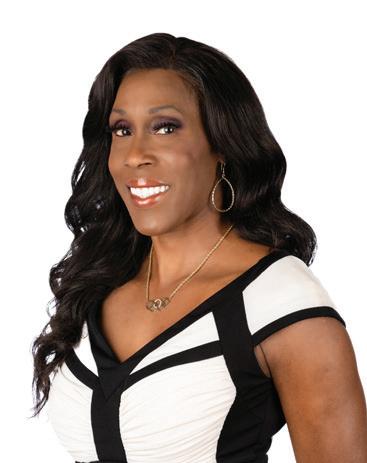
Deborah Lue, MD, breast surgeon and director of the Breast Program
Tuesday, October 18
5:30 p.m. to 9 p.m. (Doors open at 5 p.m.)
The Imperia, $20
To register, visit https://bit.ly/3wdX6xB.
Unless otherwise indicated, events are free and registration is required. To register or for more information, visit www.rwjbh.org/events/somerset or call the Community Health Department at 908.685.2814. Cancellations within two weeks of the program are nonrefundable under any circumstances.
more is a great way to improve or maintain your health. Join an RWJUH Somerset healthcare professional at the community hub for a discussion on exercise, and take a walk around the mall as a group. HealthHike walkers will be able to log miles and receive health information.
Gary Benedict, exercise physiologist Wednesday, November 2 10 to 11 a.m. (walk begins at 9:30 a.m.)
Bridgewater Commons Mall Community Hub
To register, visit https://bit.ly/3z0ZKZw.
Aquacize
This water exercise program soothes arthritis pain, strengthens joints and improves range of motion and lung capacity.
Ellen Helman, certified water fitness instructor
7-week courses begin: Monday, November 7, and Wednesday, November 9 10:30 to 11:15 a.m.
Somerville YMCA; $44
To register, call 908.685.2814.
Gut Reactions: Nutrition for Stomach and Colon Cancer Prevention

Discover the difference between stomach and colon cancer, and find out about the types of stomach cancer and risk factors, signs and symptoms, causes, diagnostic tools including the fecal immunochemical test (FIT) and colonoscopy, and treatment options. Learn how diet can reduce your cancer risks and how to incorporate fall produce such as squash into meals. Includes healthy recipes and a cooking demonstration.
Alan Gingold, MD, gastroenterologist
Evelyn Fuentes, NDTR, community cancer control specialist Wednesday, November 9 6 to 7 p.m.
To register, visit https://bit.ly/3azTQ8a.
Offered in collaboration with Friends’ Health Connection
Chronic Obstructive Pulmonary Disease (COPD) and Cancer: At the Top of One’s Lungs
During this webinar, understand the link between COPD and lung cancer, risk factors for each, causes, signs and symptoms, stages of cancer, diagnostic tools
such as lung cancer screening, surgical and nonsurgical treatments, and prevention strategies to sustain a healthy respiratory system.
Eshan Patel, MD, oncologist
Kerstin Scheper, DNP, RN-BC, OCN, CHPN, Director of Operations Kaidlan Ricardo, lung screening coordinator
Robyn Mustacchio, RRT, respiratory therapist
Tuesday, November 15 Noon to 1 p.m.
To register, visit https://bit.ly/3PoS2xI. Offered in collaboration with Friends’ Health Connection and CrossRoads4Hope
Smoke Signals: The Health Effects of Tobacco
Understand the effects of smoking on overall health, the different types of smoking, various diseases smoking causes, signs and symptoms, risks of addiction, diagnostic tools, treatments and cessation strategies.
Monica Gilles, MAS, RRT, NCTTP, Tobacco Cessation Counselor
Thursday, November 17 Noon to 1 p.m.
To register, visit https://bit.ly/3PmUR2c. Offered in collaboration with Friends’ Health Connection and Rutgers Cancer Institute of New Jersey
Aerobics for the Mind: The 10 Warning Signs of Alzheimer’s Disease Alzheimer’s and other dementias cause memory, thinking and behavior problems that interfere with daily living. Join us to learn how to recognize common signs of the disease, how to approach someone about memory concerns, the importance of early detection and benefits of a diagnosis, possible tests and assessments for the diagnostic process, and Alzheimer’s Association resources. Staff will lead memorystrengthening activities.
Robyn Kohn, MA, CDP, CMDCP, director of program and services, Alzheimer’s Association Wednesday, November 30
10 a.m. to 12:30 p.m.
Somerville Elks; $10
To register, visit https://bit.ly/3PiRN78.
COMMUNITY CALENDAR
Joetta
Healthy Together | 22 | Fall 2022
BARIATRIC SURGERY PROGRAMS
Virtual Bariatric Support Group
Anyone who is considering bariatric surgery as well as post-surgical patients are welcome to attend. The group will discuss topics such as healthy meal ideas, mindful eating, emotional eating, the importance of exercise, surviving the holidays, smart shopping and how to eat healthy while dining out.
Tia Hagins, RD, community nutritionist
Tuesdays: October 11, November 8 and December 13 6 to 7 p.m.
To register for the bariatric support group, call Tia Hagins at 908.704.3765.
Ask the Doctor about Weight Loss Surgery
Are you struggling to lose weight? Weight loss surgery may be the right choice for you. But how do you know if you qualify and which procedure is your best option? Join bariatric surgeons at Robert Wood Johnson University Hospital Somerset for free seminars to learn about your weight loss surgery options, including detailed information about gastric banding, gastric sleeve and gastric bypass.
David Ward, MD Thursday, November 17 6:30 to 8 p.m. To register, call 908.595.2304.
SUPPORT GROUPS
Eating Disorders—Family Support
This is a parent-facilitated discussion.
First and third Thursdays of each month, 7:30 to 8:30 p.m.
Hamilton Conference Room or https://global.gotomeeting.com/ join/501486981
You can also dial in using your phone: 408.650.3123; access code: 501-486-981.
Eating Disorders— Patient Support
This is a staff-facilitated discussion open to anyone with an eating disorder.
Second and fourth Thursdays of each month, 7:30 to 8:30 p.m.
Hamilton Conference Room or https://global.gotomeeting.com/ join/355332573
You can also dial in using your phone: 571.317.3122; access code: 355-332-573.
DECEMBER
World AIDS Day: Reflection, Celebration and Rejuvenation World AIDS Day is an opportunity for every community to unite in the fight against HIV, show support for those living with it and remember those who died.
Learn about the causes of the human immunodeficiency virus (HIV), symptoms, stages, the difference between HIV and AIDS, diagnosis, treatments and prevention strategies.
Perry Farhat, Director of Diversity and Inclusion and Babs Siperstein PROUD Center
Thursday, December 1 | 11 a.m. to noon
To register, visit https://bit.ly/3c7uwXE. Offered in collaboration with Friends’ Health Connection
AARP Driver Safety Program
Learn techniques to prevent accidents and/or tickets in this AARP defensive driving course. Certificates awarded upon completion of the course may entitle participants to an auto insurance discount.
Monday, December 5 8:30 a.m. to 2:30 p.m. Laurel Circle, Bridgewater; $30 (AARP member discount accepted; breakfast and lunch included)
To register, call 908.685.2814.
HealthHike: A “Walk and Talk” on Memory Enhancement
Walking 30 minutes a day or more is a great way to improve or maintain your health. Join an RWJUH Somerset healthcare professional for a discussion on memory at the community hub, and take a walk around the mall as a group. HealthHike walkers will be able to log miles and receive health information.
Serena Collado, Director of Community Health
Wednesday, December 7 10 to 11 a.m. (walk begins at 9:30 a.m.) Bridgewater Commons Mall Community Hub
To register, visit https://bit.ly/3RpQg0V.
Germs: Are They Bugging You?
Understand the types of infectious disease and the difference between the flu, pneumonia and COVID-19. Learn about risk factors, symptoms, causes, diagnosis, the latest treatment options and prevention strategies like hand hygiene to keep you healthy during the winter months.
Ronald Nahass, MD, infectious disease specialist
Wednesday, December 14 Noon to 1 p.m.
To register, visit https://bit.ly/3Rt5XnV. Offered in collaboration with Friends’ Health Connection
Stroke Support Group
First Thursday of the month 2 to 3 p.m.
Steeplechase Cancer Center 1st Floor Conference Room
All stroke survivors, their families and caregivers are invited to join our Stroke Support Group. Our multidisciplinary Stroke Center team will provide educational information and answer your questions.

• To register for the October 6 support group, visit https://bit.ly/3NZcOCD.
• To register for the November 3 support group, visit https://bit. ly/3RlRF8G.
• To register for the December 1 support group, visit https://bit. ly/3yWbOLs.
Better Breathers Club
Promotes the management of COPD and other chronic lung disease (e.g., asthma, pulmonary fibrosis, lung cancer), offers a sense of belonging and hope, and aims to improve quality of life.
Thursdays, October 13 and December 8
10:30 a.m. to 11:30 a.m.
Steeplechase Cancer Center 1st Floor Conference Room Tuesday, November 15 Noon to 1 p.m.
• To register for the October 13 support group, visit https://bit. ly/3O322eN.
• To register for the November 15 support group, visit https://bit. ly/3bmZGdw.
• To register for the December 8 support group, visit https://bit. ly/3RwDqhl.
Diabetes Support Group Diabetes Management Update Leon Shulman, MD, endocrinologist and Diabetes Center Medical Director
Thursday, November 17 6 to 8 p.m.
Steeplechase Cancer Center 3rd Floor Conference Room
To register, visit https://bit.ly/3IuZrcs.
Health at 908.685.2814.
COMMUNITY HEALTH SCREENING
A registered nurse and dietitian will be available to answer questions about diabetes management and meal planning. Thursday, November 3 | 9 to 11 a.m. Tarantino Promenade; free
To schedule an appointment, call 908.685.2814. Fasting is not required.
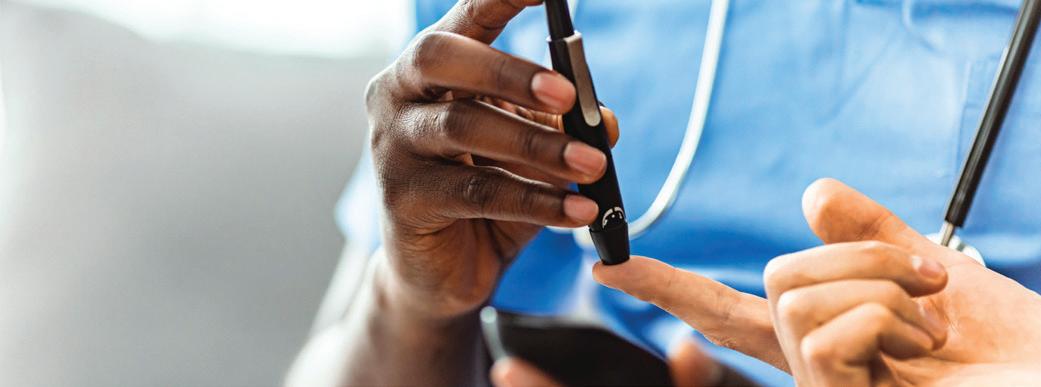
COMMUNITY CALENDAR
If you would like to receive your copy of Healthy Together electronically, please contact Community
Robert Wood Johnson University Hospital Somerset RWJBH.ORG/SOMERSET | 23
08876

When you have an eating disorder, you measure your self-worth in ounces.

Inpatient treatment for eating disorders in our newly updated facility.

Like any other disease, an eating disorder won’t just go away if left untreated. In fact, eating disorders are the deadliest mental illness in the US. It’s one reason we’ve transformed our center for eating disorders. In our completely redesigned, state-of-the-art 20-bed facility, we treat out- and inpatients as young as 14. In fact, we have the state’s only specialized eating disorders unit just for adolescents, with counseling and services for the family as well. Our experienced, compassionate team of physicians, licensed clinical therapists, creative arts therapists, nutritionists and other eating disorders specialists provide each patient with individualized treatment and skills they can use for a lifetime. Let us help. To learn more, visit rwjbh.org/eatingdisorders

NON PROFIT U.S. POSTAGE PAID Harrisburg, PA Permit #324110 Rehill Avenue, Somerville, NJ






















































 KATHLEEN TOOMEY, MD
KATHLEEN TOOMEY, MD









